Important products aren’t always good or bad. Often, they fall somewhere in-between, all the while offering perspective on where a particular industry has found itself … and where it might be going.
This is the spirit driving the 12th annual GP100, Gear Patrol‘s mighty, end-of-year roundup collecting the year’s most relevant releases from tech, motoring, style and watches, outdoors and more.

Our team spent months filtering through thousands of new products, going hands-on whenever we could, to identify the innovations and updates that left the biggest marks on their respective industries. And no, not always to a better, let alone conclusive, end.
This year, we also decided to do something we’ve never done in more than a decade of publishing the GP100: rank our winners.
Admittedly, the process wasn’t scientific, or even always fair. That said, our editors were indeed guided by a few basic tenets, including novelty, popularity and impact on culture at large.
You might not agree with our selections. You definitely won’t agree with the order. But maybe, just maybe, you might agree with us on this: products have never been so dynamic, exciting and downright important to our lives.
Below, find our top watches, ranging from a trendy Timex to a timepiece so accurate, it measures years by the millions. To see the winners from other categories, check out the full list.
17. A titanium GMT watch sets a new standard for value
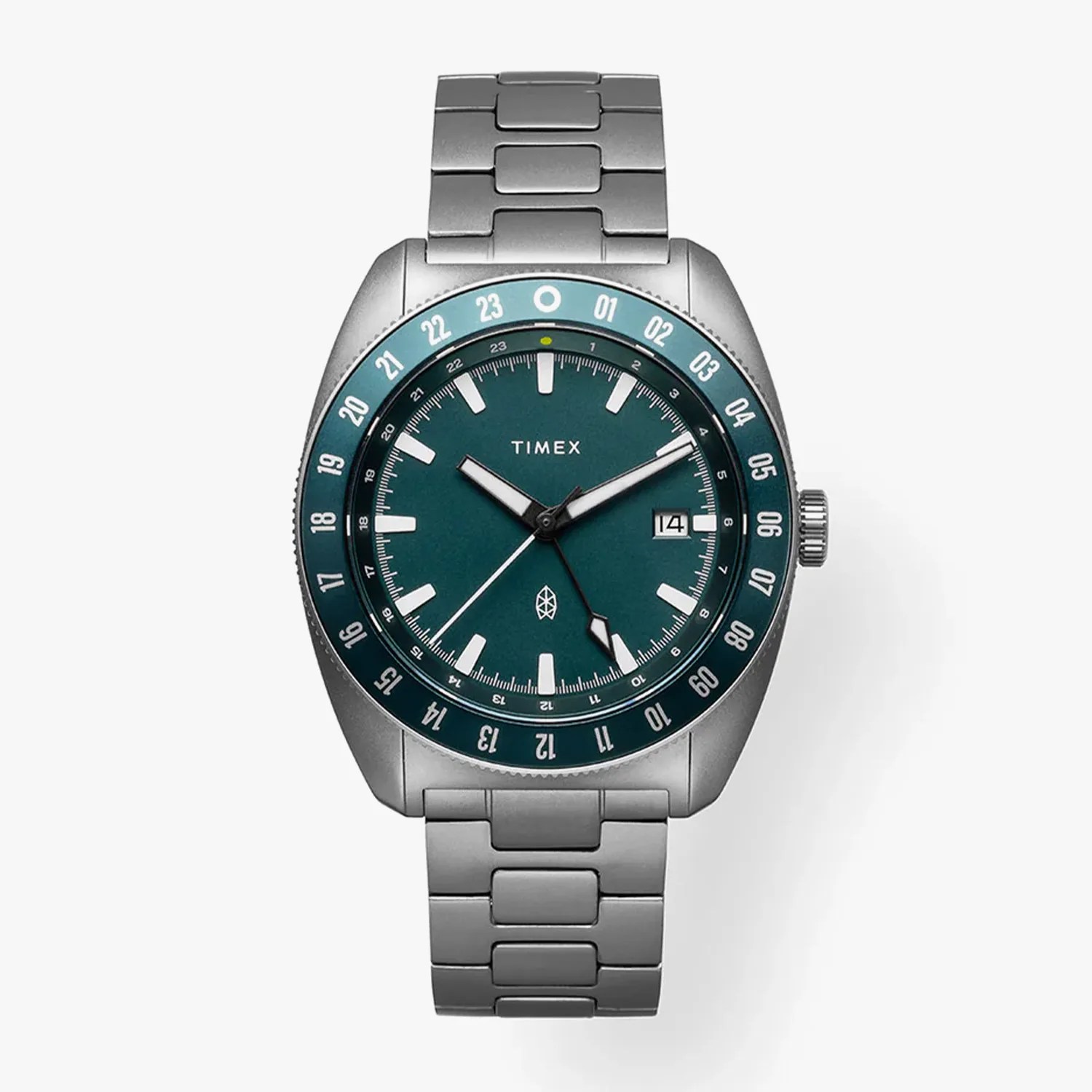 The James Brand x Timex
The James Brand x TimexTimex x The James Brand x Titanium GMT
Specs
| Case Size | 41mm |
| Movement | Miyota 9075 automatic GMT |
| Water Resistance | 200m |
Two of the more interesting stories that have emerged in the watch industry over the past few years are the democratization of affordable automatic GMT watches and the resurgence of Timex as a major player in the market.
This watch is the ultimate culmination of both trends.
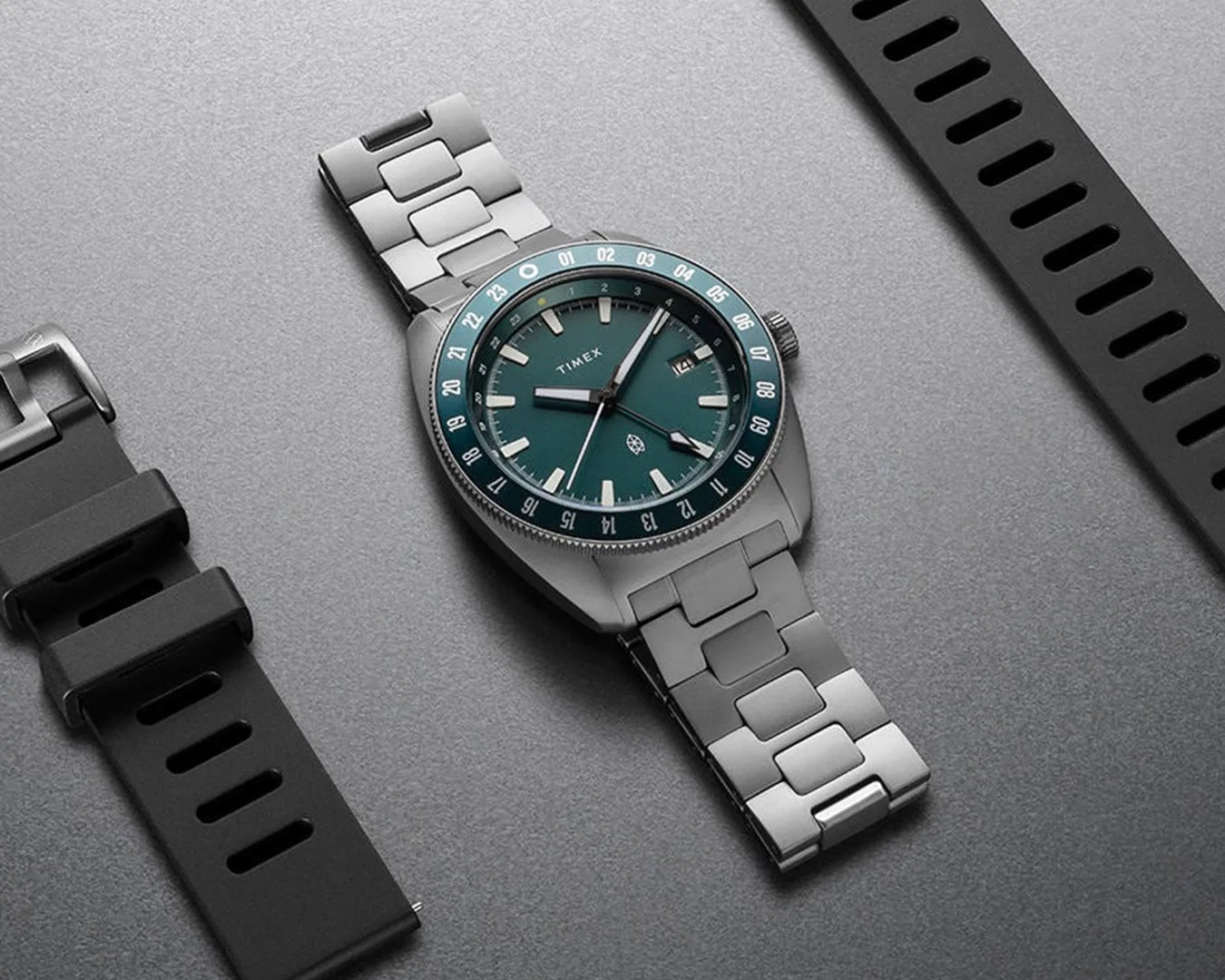
With a big assist from design-forward EDC favorite The James Brand, this watch is arguably the most GMT you can get for the money. Well, it was anyway: both colorways released so far have been limited editions that sold out quickly.
The watch’s popularity is quite easy to understand. On paper, it’s an absolute monster. Both the case and the full bracelet are made of lightweight titanium. There is a sapphire crystal with anti-reflective coating over the dial and a second sapphire on the display caseback. Water resistance is a dive-appropriate 200m, the lume is Swiss-made Super-LumiNova C1, and the movement is Miyota’s excellent Cal. 9075 automatic “true” GMT with its independently adjustable fourth hand.
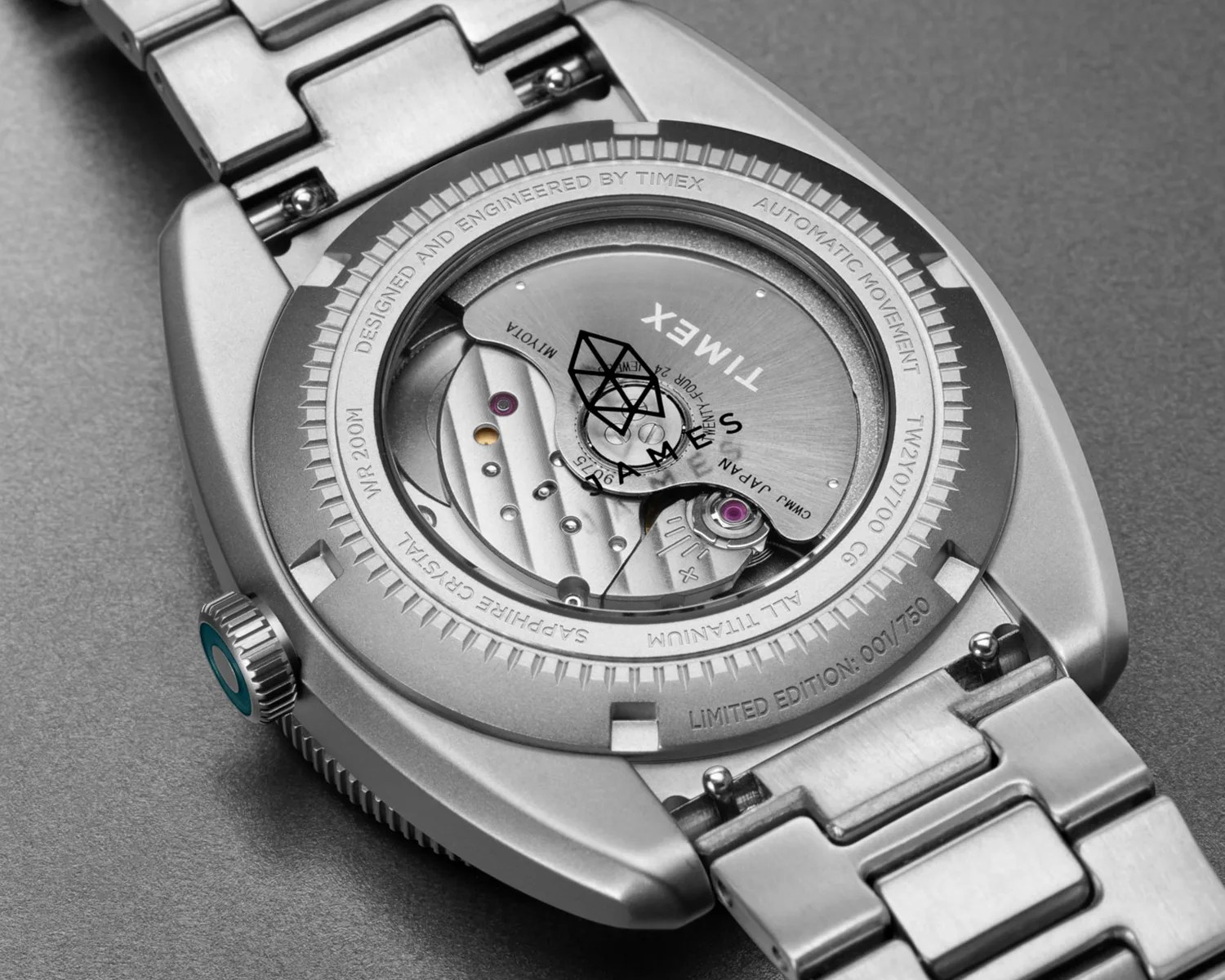
Add in TJB’s design work, which gives the watch a contemporary edge that’s not only attractive but also wholly original compared to every other GMT on the market, and you have an undeniably compelling package at a price that feels too good to be true.
16. A fan-favorite affordable watch goes into stealth mode
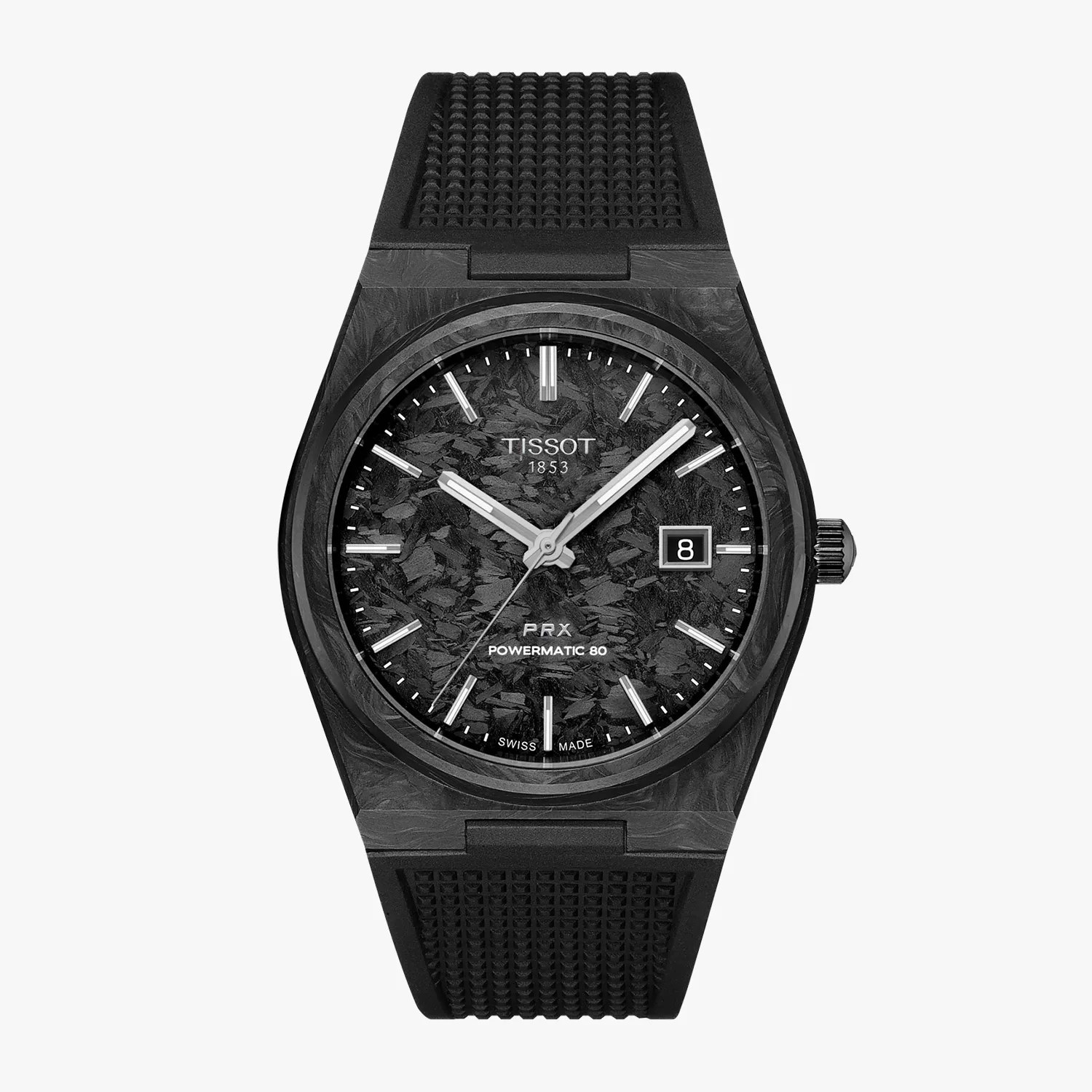 Tissot
TissotGP100 Winner
Tissot PRX Powermatic 80 Carbon
Specs
| Case Size | 40m |
| Movement | Tissot Powermatic 80 Silicium automatic |
| Water Resistance | 100m |
Ever since its Earth-shattering debut back in 2021, the Tissot PRX has consistently ranked among the top affordable everyday watches on the market.
Following that initial unveiling, Tissot has experimented with the PRX by launching dozens of iterations in various sizes and colors with different dial treatments, bezels and PVD coatings and three different movements. But despite their myriad differences, these PRX variations all shared one thing in common: all had cases made of stainless steel.
But not the PRX Powermatic 80 Carbon — the first non-steel PRX that only adds to the model’s legacy as a luxury watch for less.
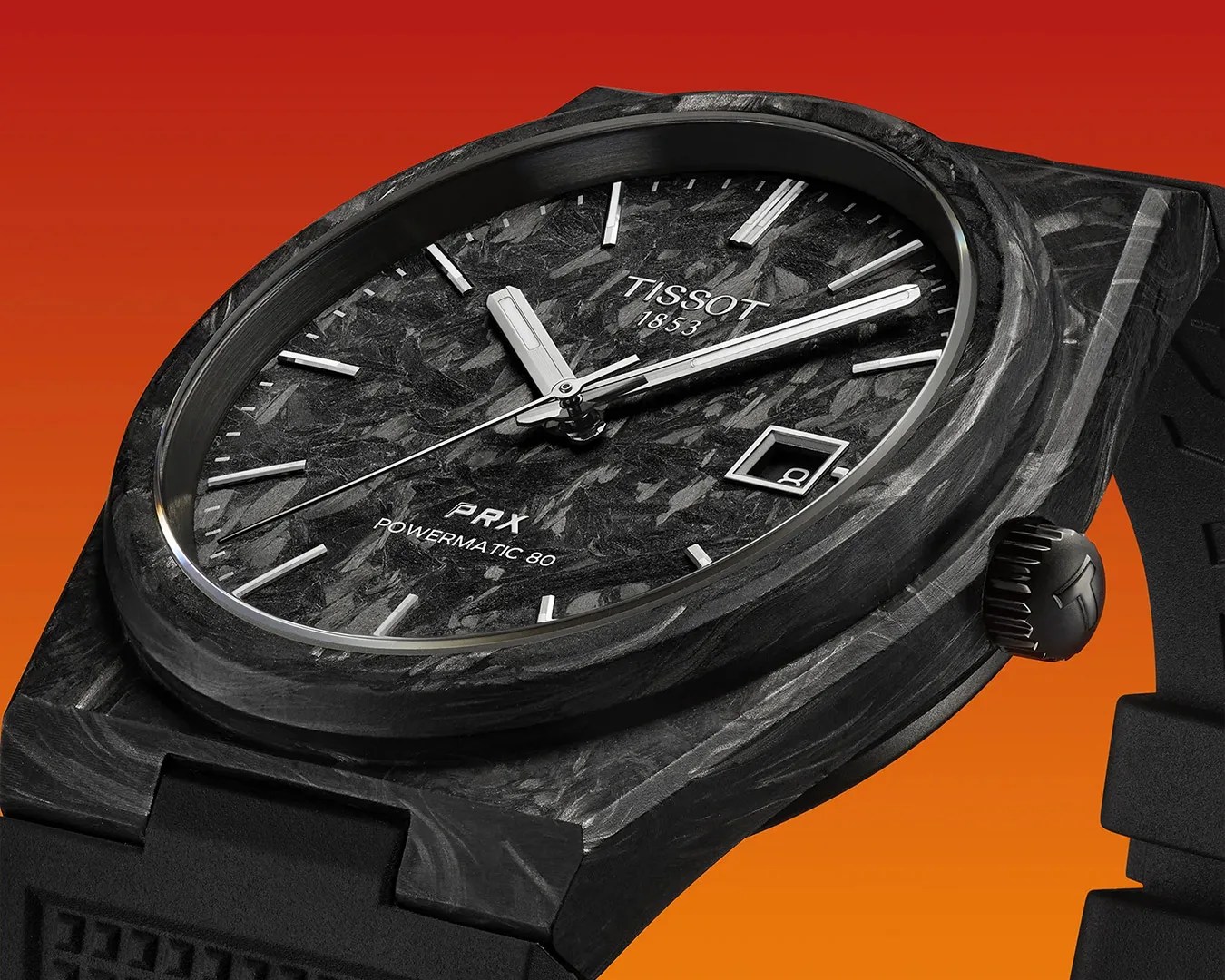
Forged carbon, the ultralight aerospace material used for both the case and dial of the PRX Carbon, is most often seen in watches costing many times the price of a PRX. Not only that, but the watch also houses an improved version of its titular Powermatic 80 movement. In place of the Nivachron hairspring found in other automatic PRX watches, the Carbon’s movement has the type of amagnetic silicon hairspring found in luxury watches.
Even though it’s built more like a luxury watch than ever, Tissot kept this stealthy version of the PRX at its typical low price point, coming in just under $1,000.
15. An upstart watch brand enters a new level of excellence
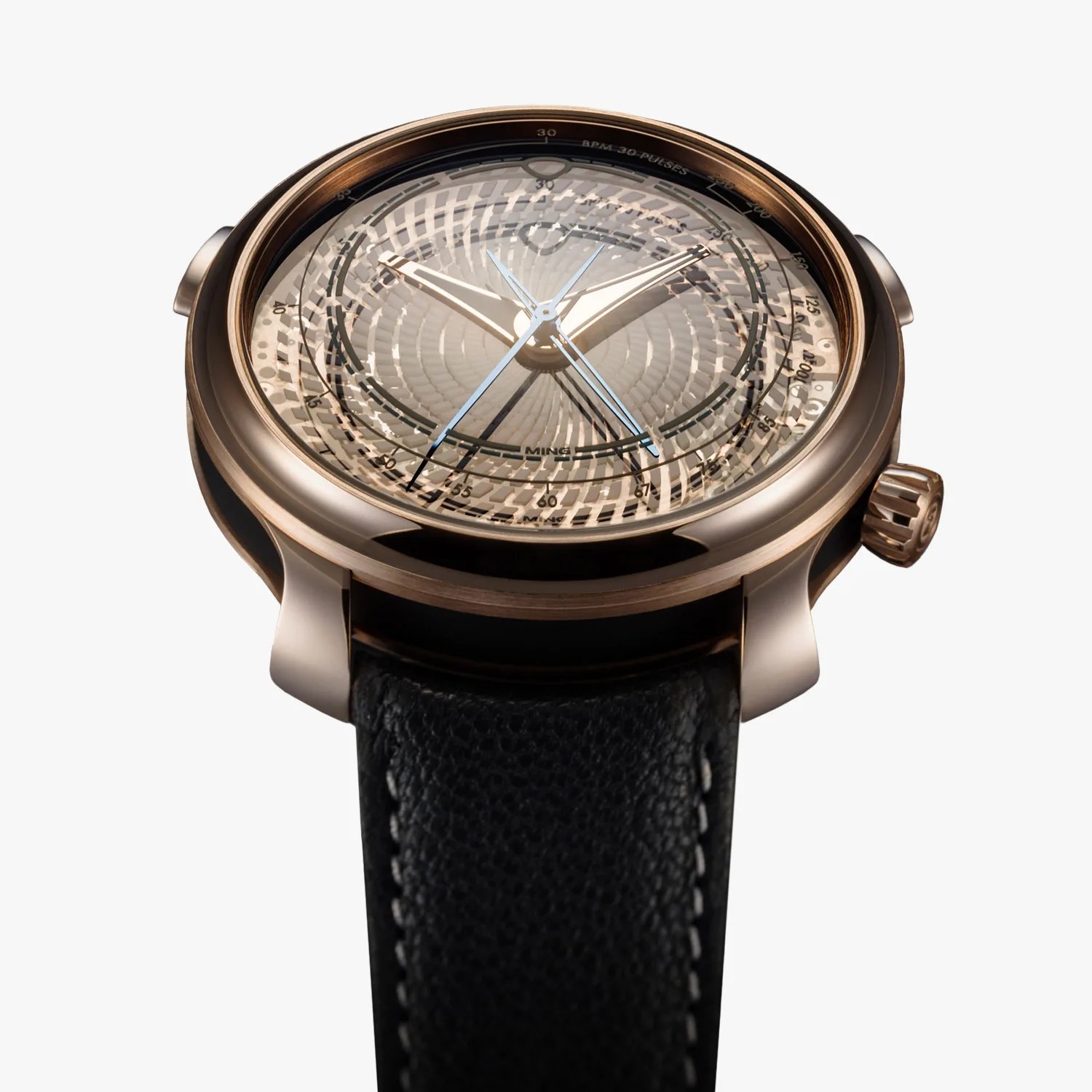 MING
MINGGP100 Winner
Ming 20.01 Series 3
Specs
| Case Size | 41.5mm |
| Movement | Agenhor for Ming AgenGraphe Cal. 6361.M1 manual-wind chronograph |
| Water Resistance | 50m |
Ming has always been a bit of a prodigy. The Malaysian independent brand produced its first watch in 2017, successfully challenging luxury watch industry norms with its radically different design language and upfront Asian origins to become one of the most in-demand and acclaimed watch brands in the world.
By now, you’d think we’d have learned not to underestimate Ming. But the brand continues to exceed expectations, with the exceptional 20.01 Series 3 arguably being its most impressive creation to date.
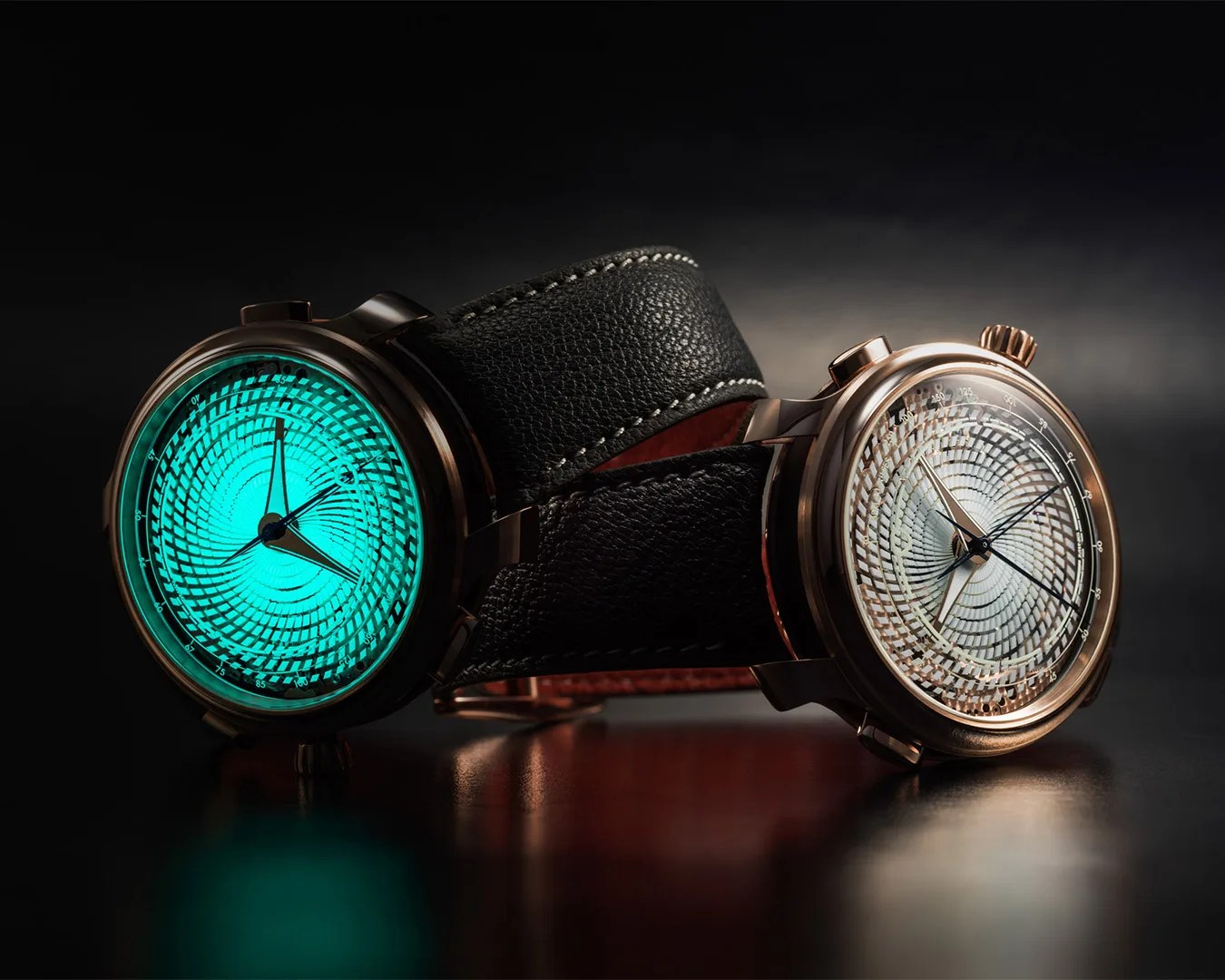
The case features Ming’s trademark flared lugs, except here they’re part of a solid 18k 5N rose gold outer case surrounding a black DLC Grade 5 titanium core. The movement is one of the finest in the world: a custom version of Agenhor’s AgenGraphe — a manually wound, centrally mounted jumping chronograph packed with proprietary innovations.
Most impressive of all is the dial. A visual feast in light or darkness, it required inventing a new technique to create and consists of a slab of topographical borosilicate glass with 600 laser-fused cavities hand-filled with luminescent material.
It’s a prime example of the kind of experimental work only Ming is doing, and perhaps only Ming can do.
14. A refined, and sporty, take on an iconic pilot’s watch
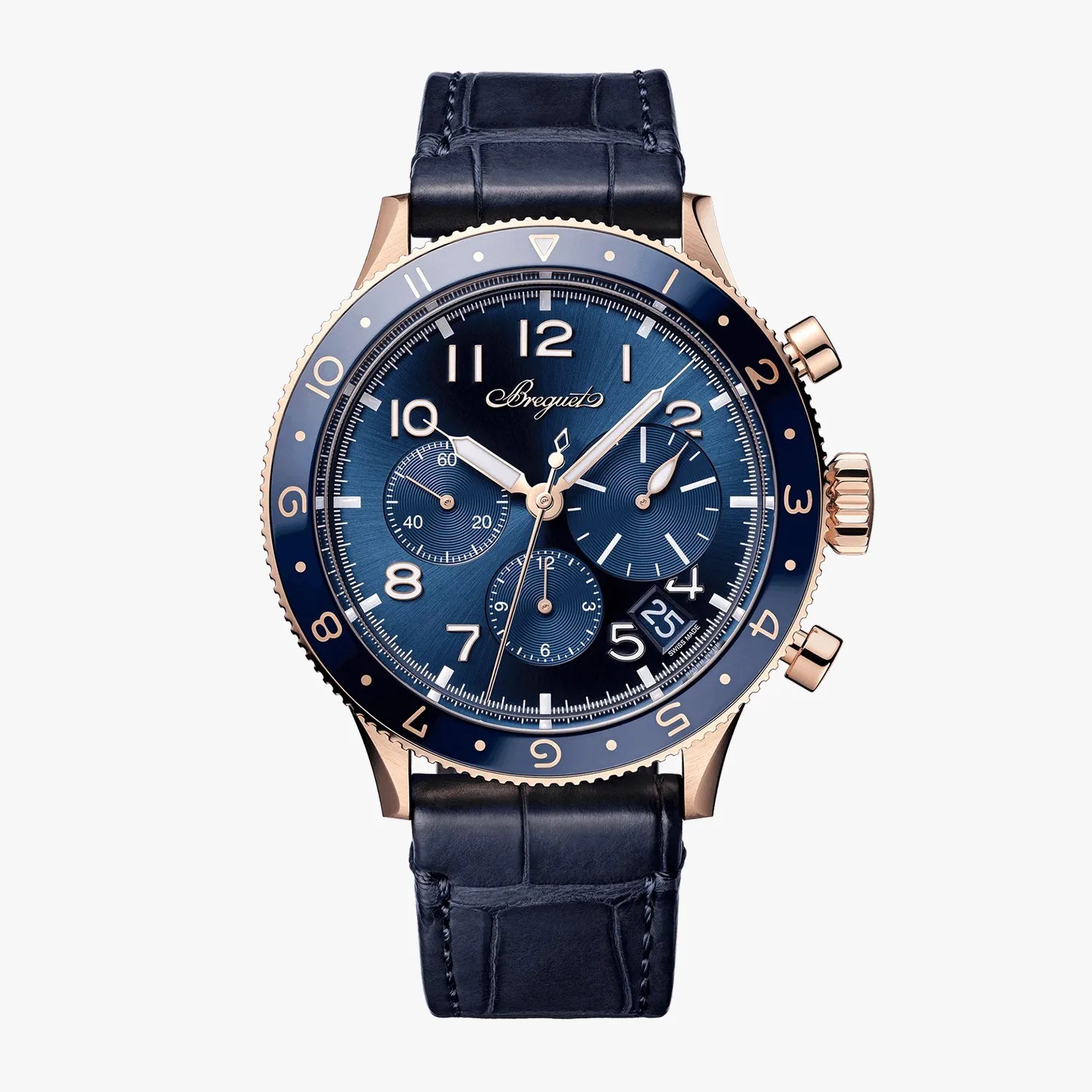 Breguet
BreguetGP100 WINNER
Breguet Type XX Rose Gold
Specs
| Case Size | 42mm |
| Movement | Breguet Cal. 728 automatic chronograph |
| Water Resistance | 100m |
A true icon in the world of tool watches, the Breguet Type XX is the civilian version of the Type 20 pilot’s watch that Breguet and other brands produced for French Air Force Pilots in the 1950s.
Just last year, Breguet introduced brand-new versions of the Type XX and Type 20 watches to great acclaim. But instead of resting on its laurels, the brand returned this year to launch a Type XX unlike any other.
Somehow, the Type XX Rose Gold is simultaneously sportier and more refined than its stainless steel siblings. The increase in refinement comes from its case made of solid 18k rose gold, its applied indices and logo, its more elegant syringe hands and its gorgeous blue sunburst dial.
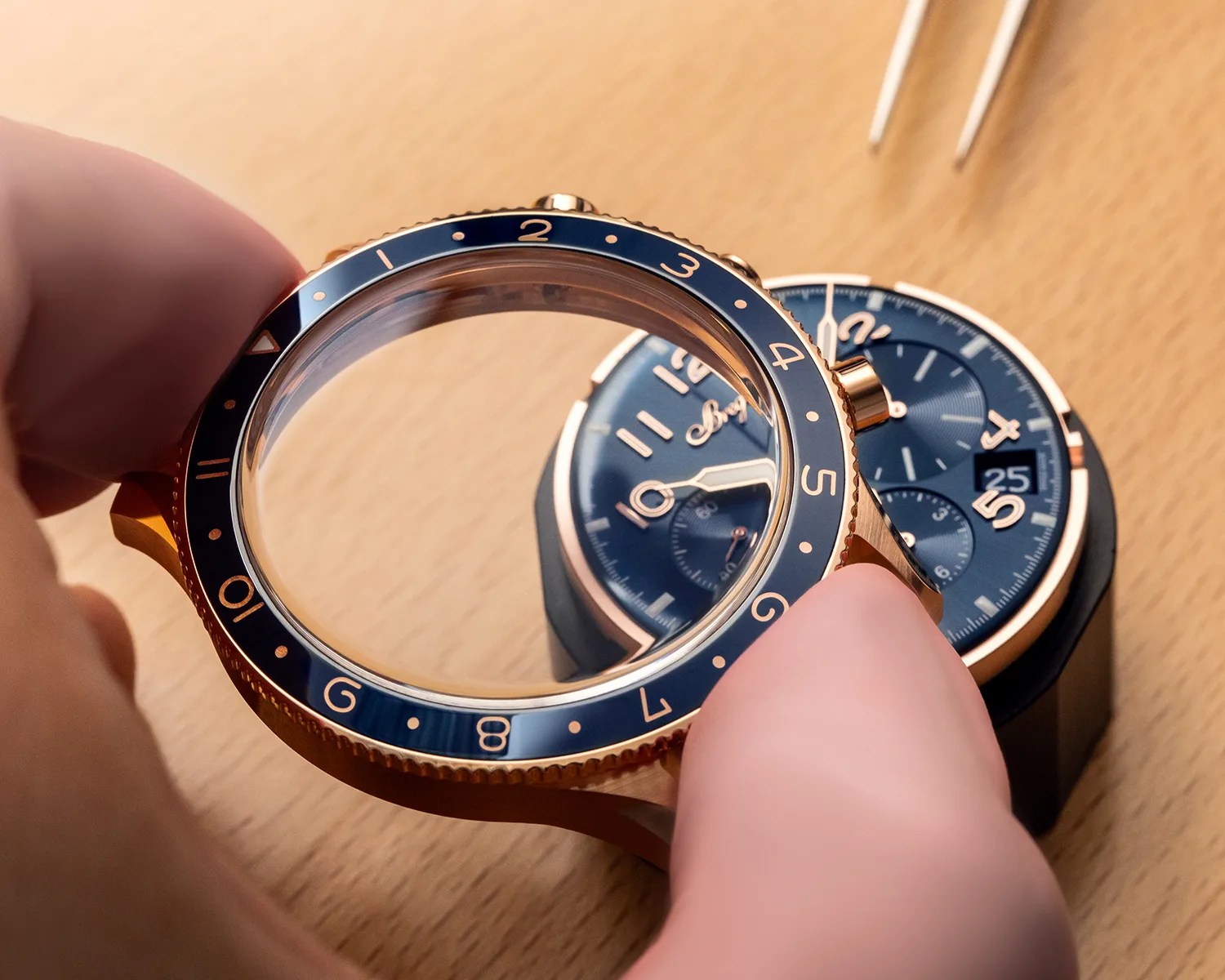
The uptick in sporty vibes comes courtesy of the watch’s glossy blue ceramic insert for the 12-hour bezel. This type of bezel insert on a sports watch from a brand like Rolex or Omega would be considered pretty standard, but Breguet isn’t known for making sports watches. In fact, this marks the first time in its entire 249-year history that Breguet has used ceramic in any of its watches.
All of these changes create a Type XX that doesn’t look like a Type XX. It’s prettier, it’s sportier, it’s more luxurious. But is it an icon? Only time will tell.
13. An innovative dive watch rethinks its purpose
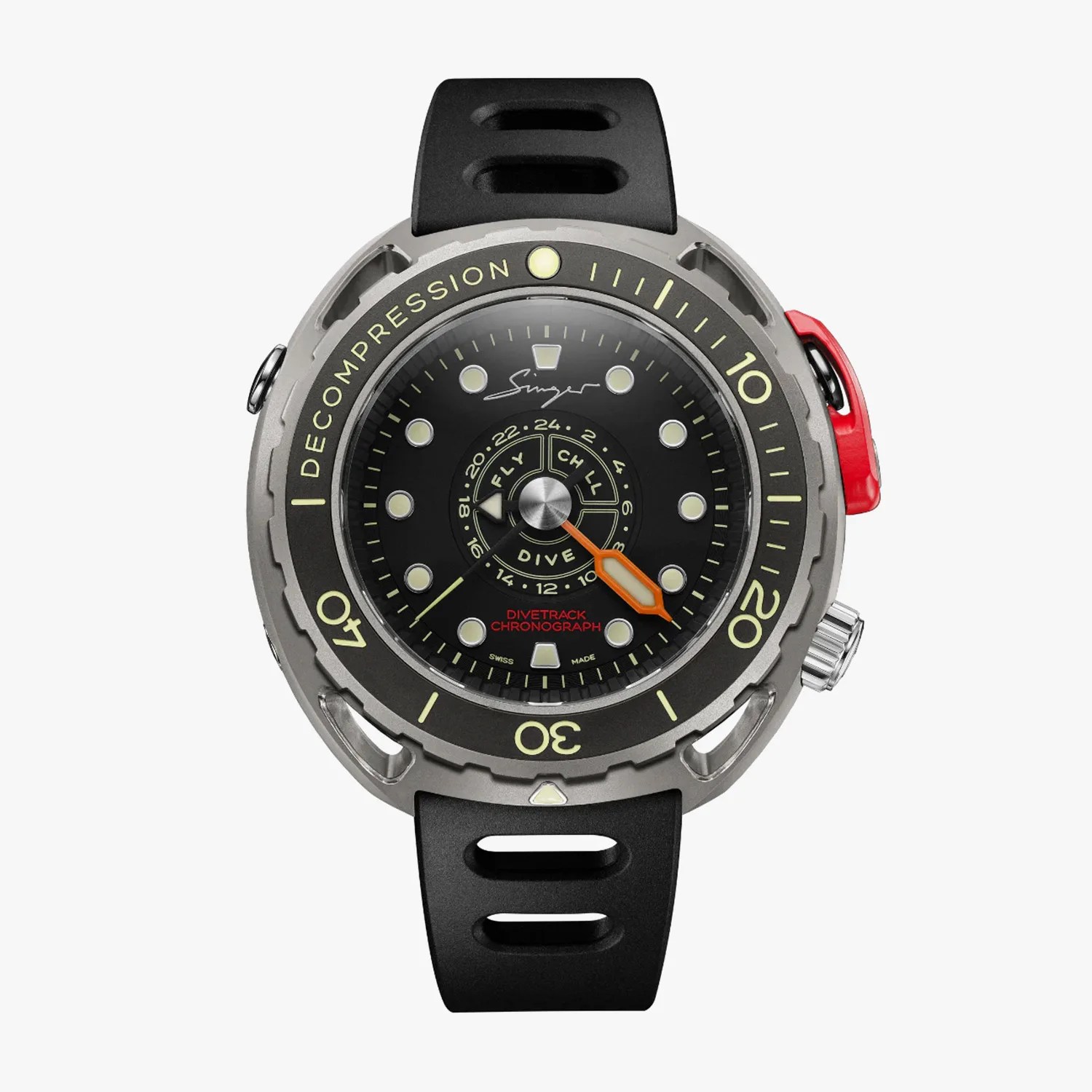 Topper Fine Jewelers
Topper Fine JewelersGP100 Winner
Singer Reimagined Divetrack
Specs
| Case Size | 49mm |
| Movement | Singer Reimagined AgenGraphe automatic chronograph |
| Water Resistance | 300m |
The dive watch is arguably the most recognizable watch style there is. Since their invention in 1953, dive watches have measured elapsed time underwater via a rotating bezel. Now, 70 years later, someone has finally come up with another way.
Take a look at the Divetrack, and you’ll notice something strange: There’s no way to tell the time on the dial (time is read horizontally between the lugs). Instead, a unique chronograph from movement manufacture Agenhor literally takes center stage with centrally mounted hour, minute and seconds hands.
Activate the chrono at the start of your dive, and the central minute hand will clearly track your time underwater. The bezel is used exclusively to time your decompression stops on the way up rather than to measure elapsed time.
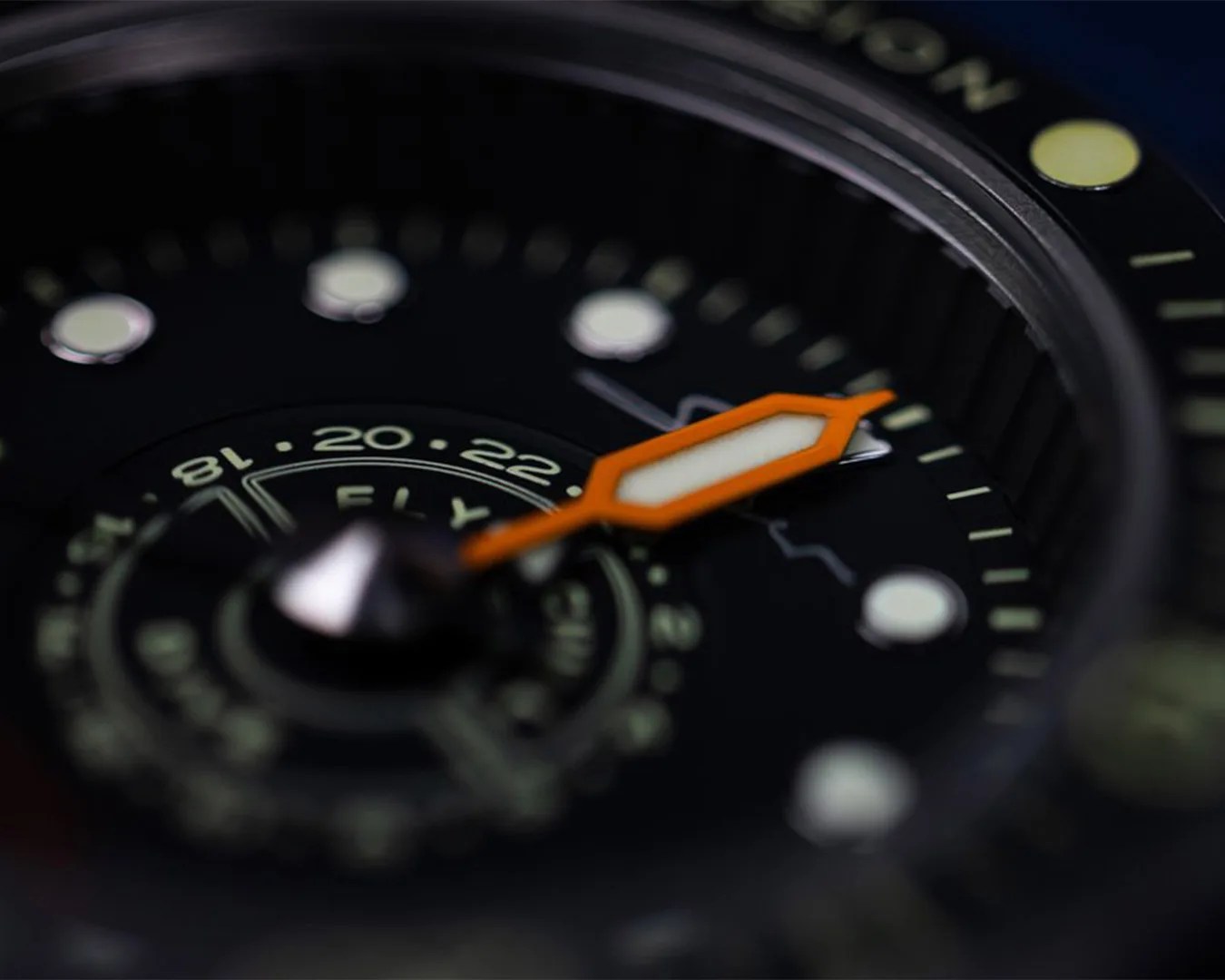
And the hour hand? It runs for 24 hours and tracks your full day of diving on the dial’s center scale. Restart the timer after your dive to activate the six-hour “chill” period recommended before getting in the water again. After the final dive of your trip, start the timer again to ensure you hit the 18 hours before it’s safe to “fly.”
Never before has a mechanical dive watch taken such a holistic approach to dive time.
12. A class-leading GMT throws down the gauntlet
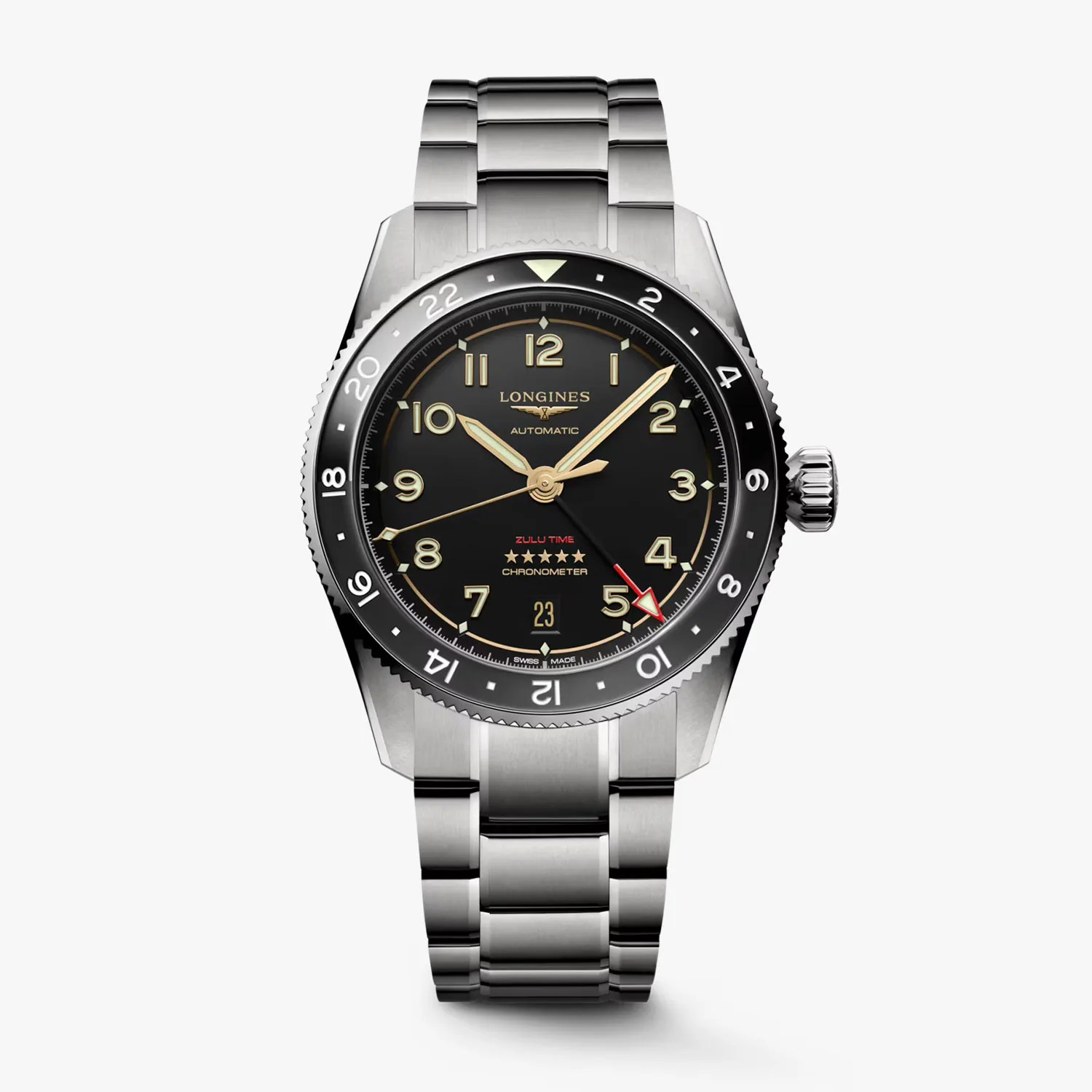 Longines
LonginesGP100 Winner
Longines Spirit Zulu Time Titanium
Specs
| Case Size | 39mm |
| Movement | Longines Cal. L844.4 automatic GMT |
| Water Resistance | 100m |
With its Spirit Zulu Time GMT, Longines has been speedrunning how to perfect a product.
In 2022, the brand debuted the original Spirit Zulu Time GMT: a stainless steel sports watch in 42mm with a bidirectional ceramic bezel, a clean and modern design and an exclusive new automatic movement with an independently adjustable hour hand that made it ideal for travel — all with a starting price under $3,000.
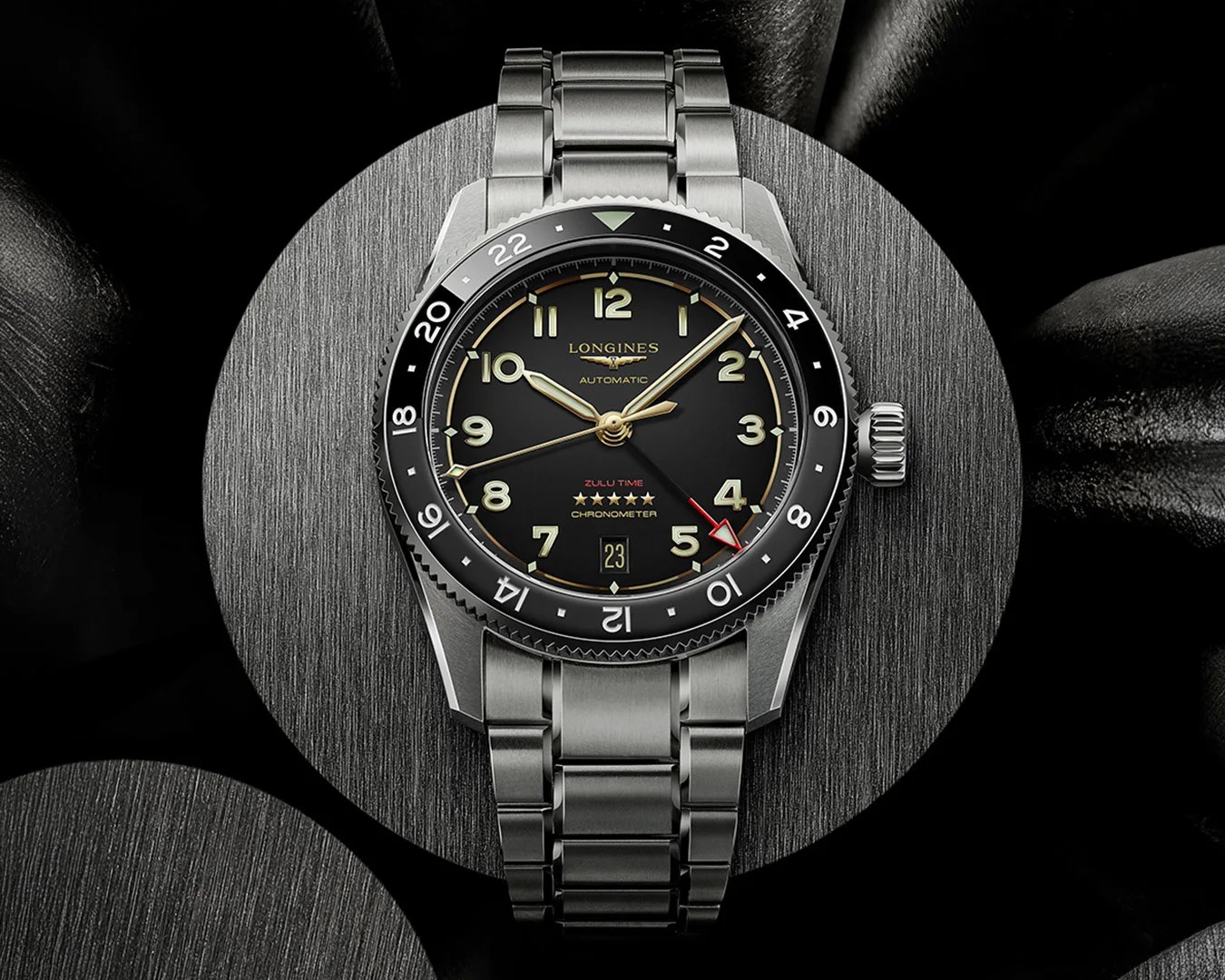
The Zulu Time received enthusiastic praise, but one consistent criticism was that it was too big at 42mm. Longines heard everyone’s complaints, and the following year, the brand launched the same watch in 39mm. This time, just about everyone was pleased with the result, but Longines wasn’t quite done.
This year, somehow, Longines made the Spirit Zulu Time even better. Still in 39mm, the brand released a version of the watch in ultrastrong Grade 5 titanium. Weighing half as much and with more of a tool watch aesthetic — accentuated by the partially matte black-and-gray ceramic bezel — the handsome Spirit Zulu Time Titanium is the most perfect example of a travel watch that started out nearly perfect to begin with.
At least until next year, anyway.
11. A dive-watch holdout makes a big splash
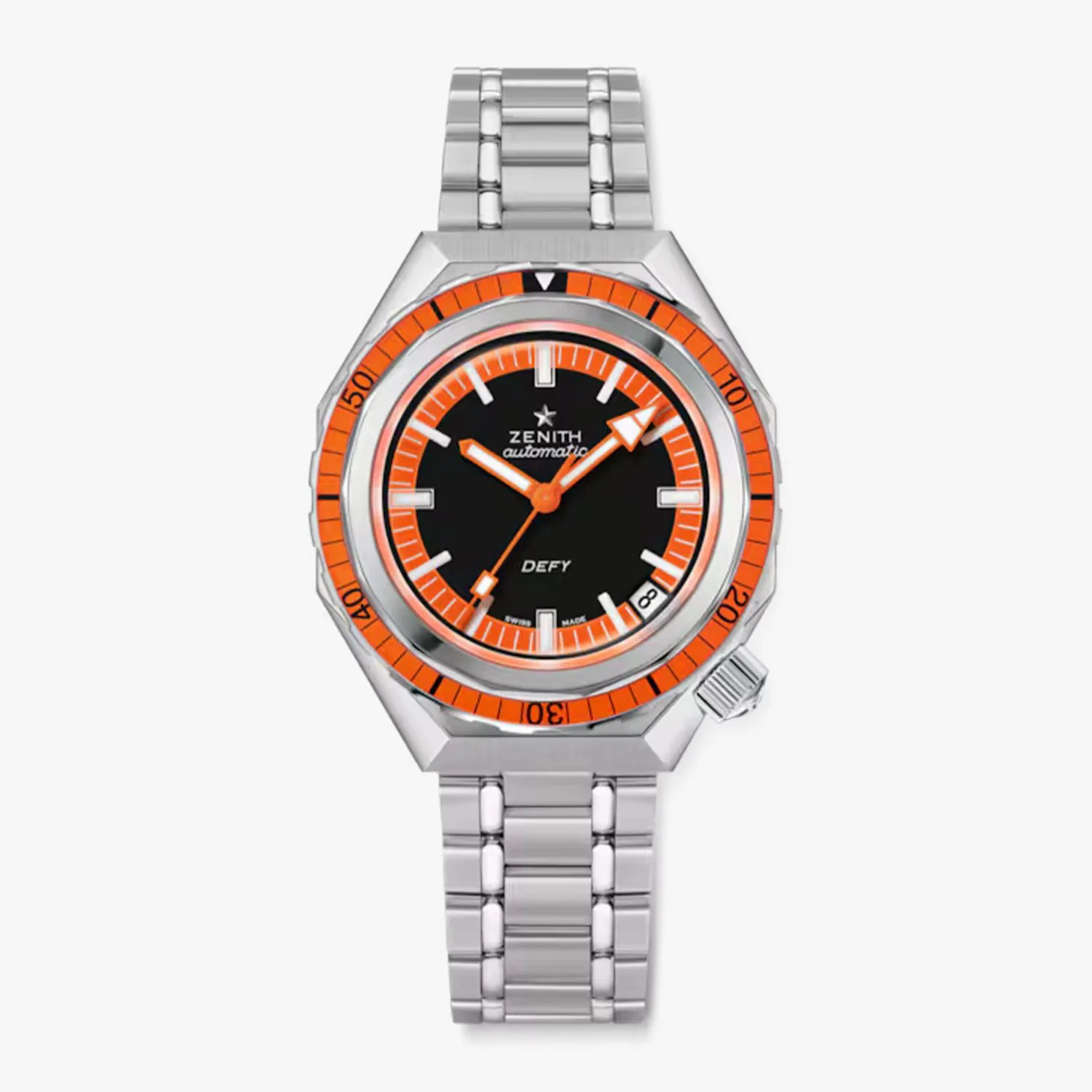 Zenith
ZenithZenith Defy Revival A3648
Specs
| Case Size | 37mm |
| Movement | Zenith Elite 670 automatic |
| Water Resistance | 600m |
For years, Zenith has had all the makings of a major luxury sports watch brand, except for one thing: a dive watch.
In 2024, Zenith finally rectified this glaring omission in its catalog in the most glorious way possible with a pair of brand-new divers. The first was the Defy Extreme Diver, a thoroughly modern diver with a clear familial relation to the rest of the brand’s modern Defy line. The other was, well, this.
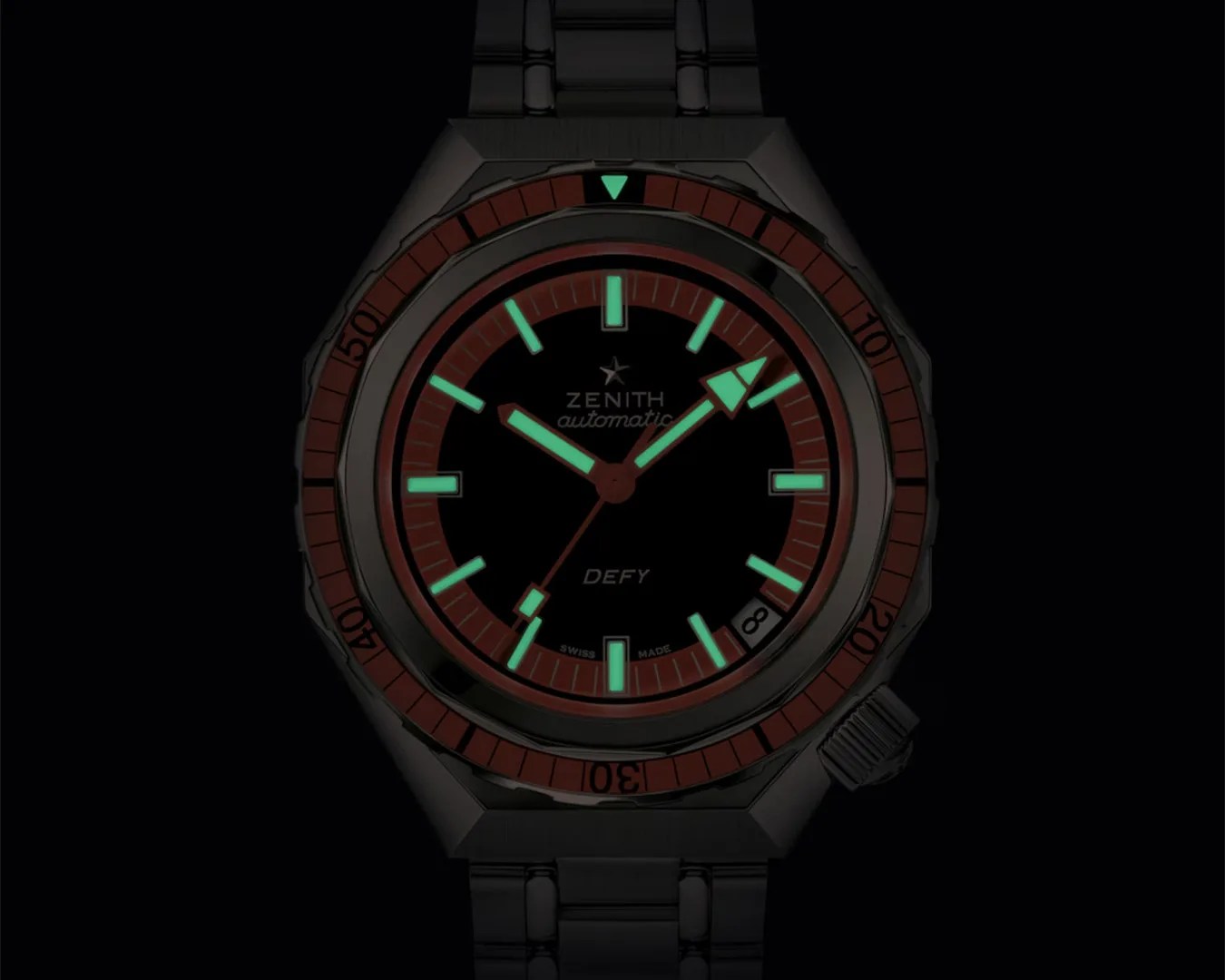
A reissue of one Zenith’s original divers from the 1960s, the Defy Revival excels because of just how unexpected it is. The sharply angled eight-sided case and 14-sided bezel, the bright orange color, the high amounts of mirror polish, the diminutive 37mm case size, the whopping 600-meter water resistance … everything about this watch is just bizarre.
That’s what makes it great. No one today makes watches that look like this. Hell, hardly anyone made them back in 1969 when the original debuted. The fact that Zenith opted to release this as its first dive watch in decades says a lot about the brand’s daring attitude, and we ended up with the year’s most fun dive watch as a result.
10. One of watchmaking’s last remaining challenges, conquered
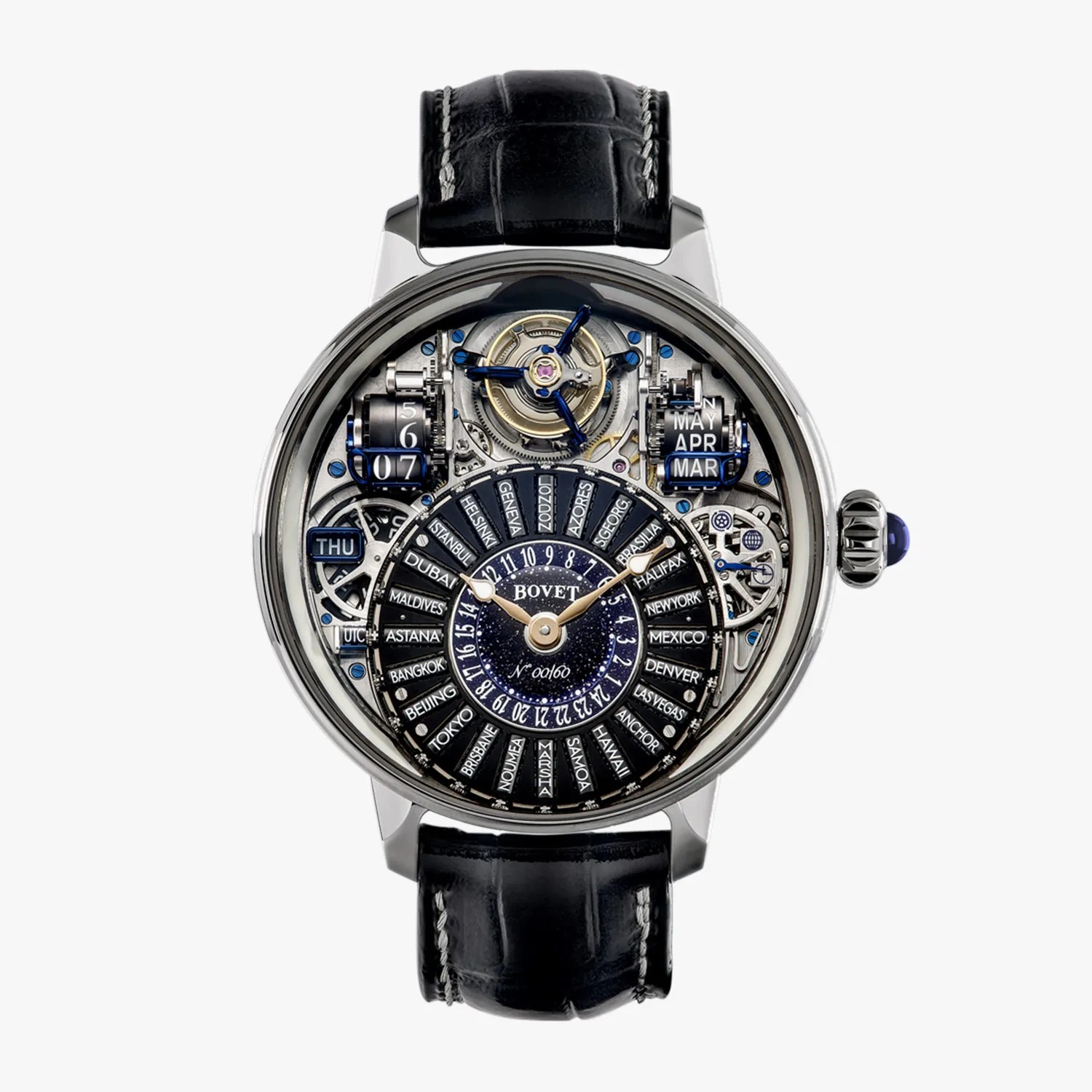 Bovet
BovetGP100 Winner
Bovet The Récital 28 Prowess 1
Specs
| Case Size | 46.3mm |
| Movement | Bovet Cal. R28-70-00X hand-wound perpetual calendar world timer |
| Water Resistance | 30m |
Mechanical watchmaking has been around for centuries, with some Swiss brands like Bovet claiming over 200 years of history. You’d think that after hundreds of years of innovation, there wouldn’t be any mountains left to climb in the field of horology. But that isn’t the case.
Ever since Louis Cottier and Patek Philippe created the first examples in the 1930s, every single world-time watch has suffered from the same issue: They don’t account for Daylight Saving Time, which means that throughout the year, some of the watch’s cities will not display the correct time.
Bovet finally solved that problem this year.
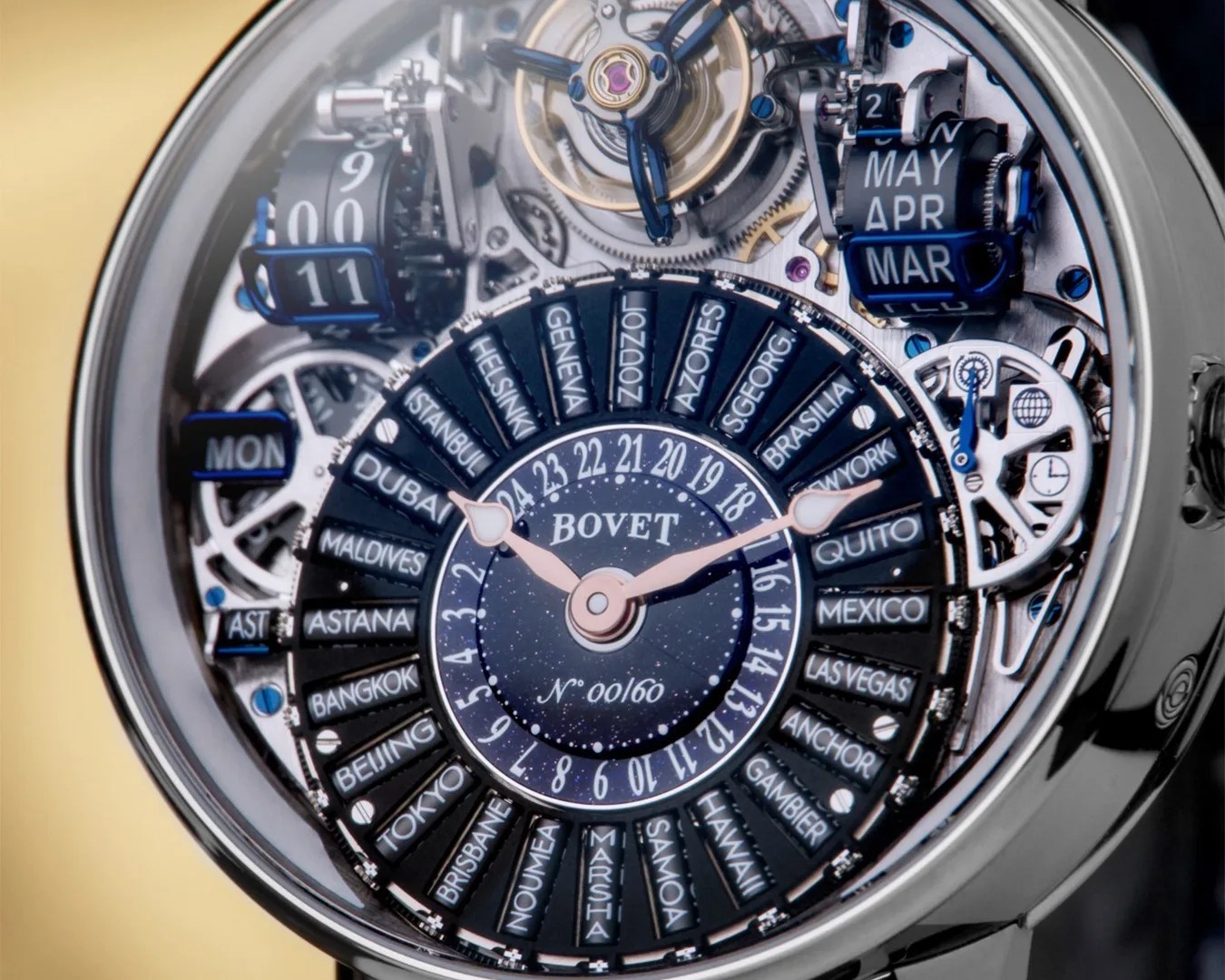 Bovet
BovetThe watch’s solution is quite ingenious. Rather than utilizing a printed ring of cities like other world timers, the Récital displays its cities on rollers. Each roller has four sides representing four different annual time systems: UTC, American DST, Europe and America Summer Time and European Winter Time. A simple press of the crown is all that’s needed to switch from one time system to another, keeping the watch accurate throughout the year.
The remarkable movement powering this wizardry is made up of a staggering 744 components and also features a tourbillon and perpetual calendar.
At this point, Bovet is just showing off.
9. An iconic diver finally fulfills its potential
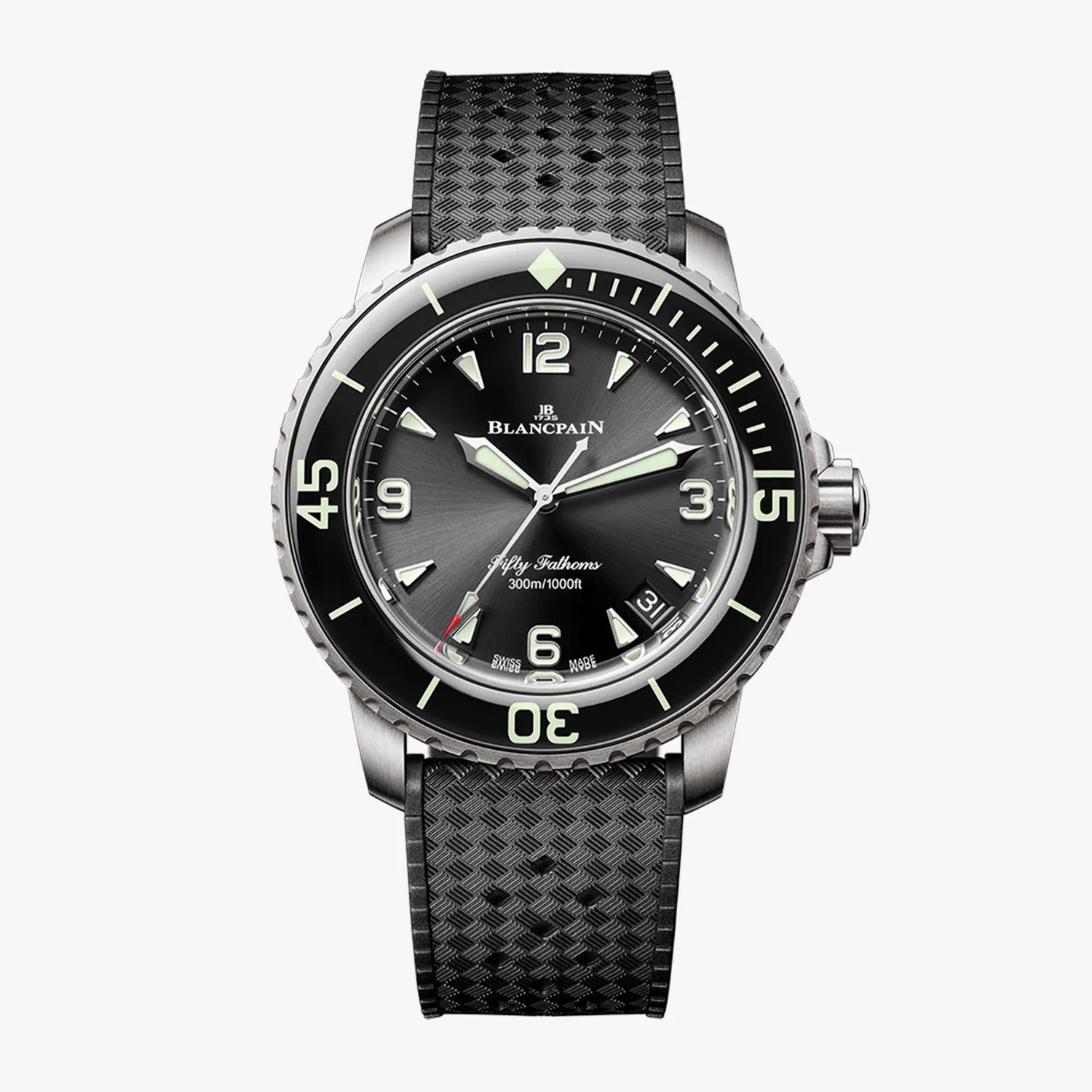 Blancpain
BlancpainGP100 WINNER
Blancpain Fifty Fathoms Automatique 42mm
Specs
| Case Size | 42.3mm |
| Movement | Blancpain Cal. 1315 automatic |
| Water Resistance | 300m |
The Blancpain Fifty Fathoms’ place in horological history is secure.
Nearly everyone agrees the original version of the watch from 1953 was the world’s first modern dive watch, paving the way for what is arguably the most popular watch style today.
In 2007, Blancpain brought the Fifty Fathoms back into its permanent catalog after a decades-long absence. For the past two decades, the modern Fifty Fathoms has outclassed other high-end divers in terms of beauty, horological chops and finishing, but one aspect of the watch kept it from fulfilling its destiny as the definitive luxury diver: its size.
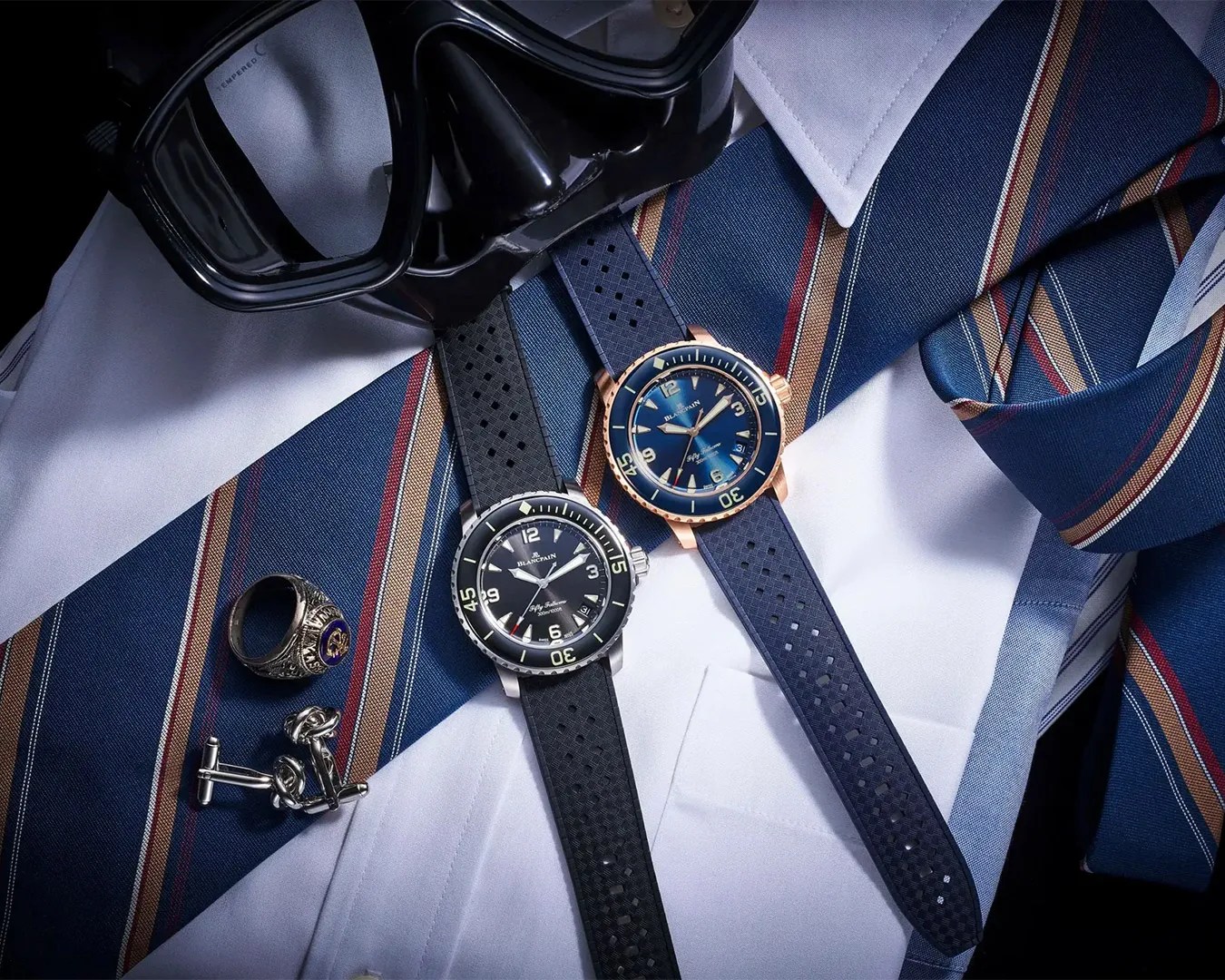 Blancpain
BlancpainSince its return, the flagship Fifty Fathoms has been an absolute beast of a watch with a 45mm case diameter. That size is 4mm larger than a Rolex Sub and 3mm bigger than both the Seamaster Diver 300M and the original Blancpain Diver. It’s simply too big.
For years, fans have implored the brand to create a smaller version of its icon, and in 2024, Blancpain finally listened. The brand launched a 42mm version of its Flagship Fifty Fathoms Automatique, bringing everything that was great about the larger watch into a smaller and more wearable package.
It feels like the spirit of the original Fifty Fathoms is officially back.
8. Up to 45 millimeters of pure, unadulterated controversy
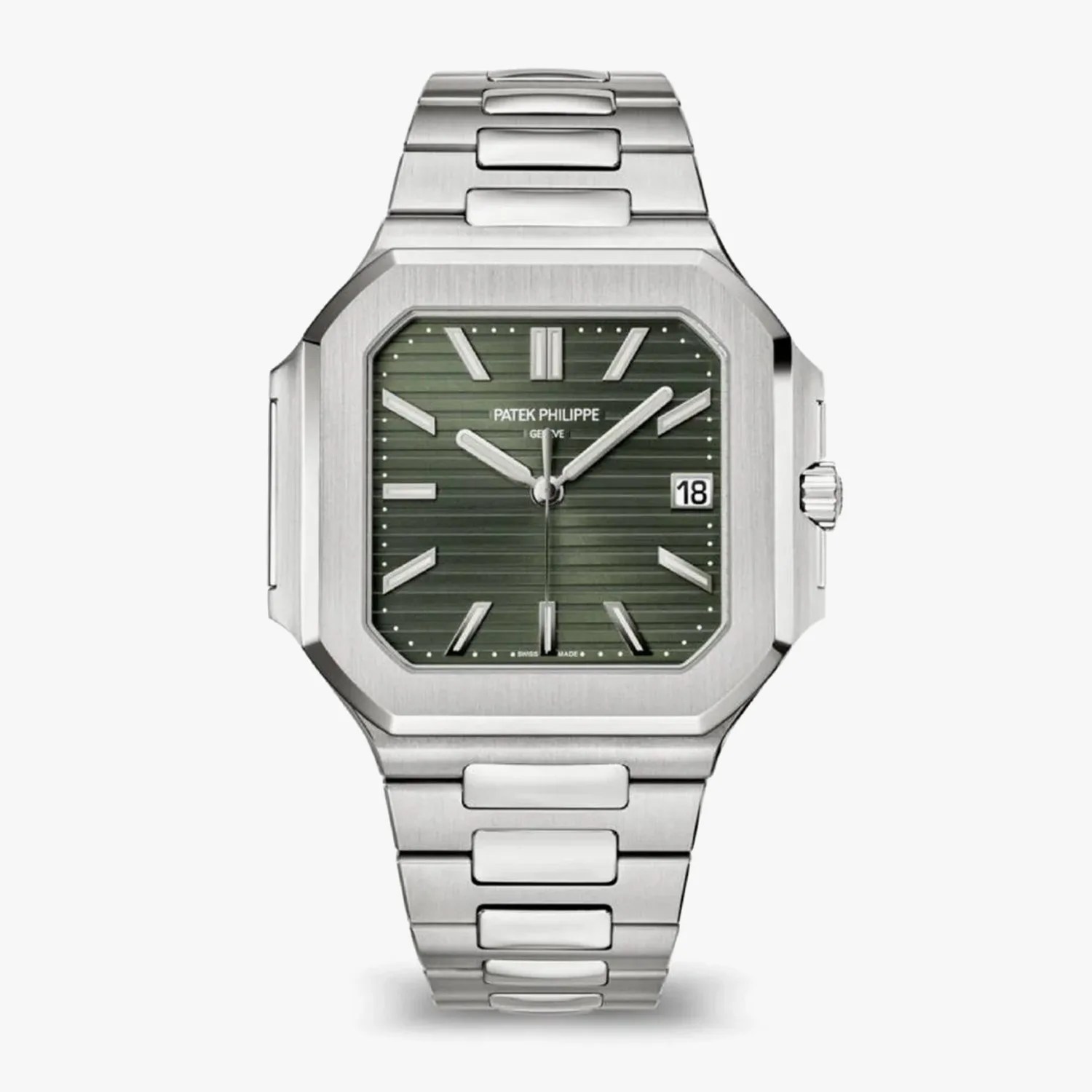 Patek Philippe
Patek PhilippeGP100 WINNER
Patek Philippe Cubitus
Specs
| Case Size | 45mm |
| Movement | Patek Philippe Cal. 26‑330 S C automatic |
| Water Resistance | 30m |
Has there ever been a watch that spurred as much hatred as the Patek Philippe Cubitus?
The Cubitus was set up for success like few other watches in history. Not only was it the first new product line in a quarter century from the world’s most prestigious watchmaker, but it also included a steel sports watch — the most sought-after and elusive style of watch from Patek.
By traditional measures, the Cubitus was a success. All three of the line’s references are impossible to purchase at retail unless you’re a Patek VIP, and all are trading for around three times their already high SRPs at the time of this writing.
Yet you’d never know it by listening to those in the watch community talk about the watch.
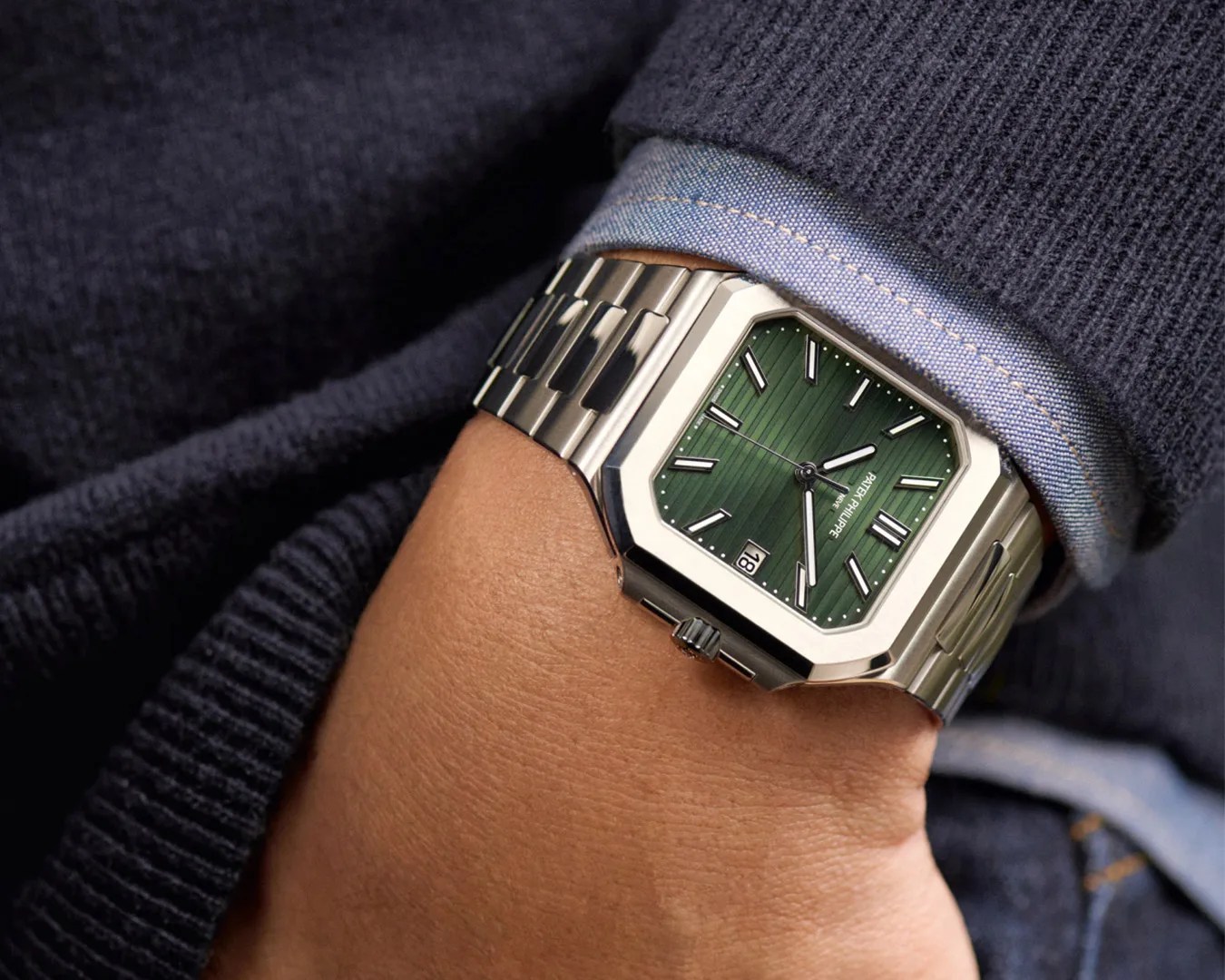 Patek Philippe
Patek PhilippeThe market, at least the portion of it that discusses such things online, was angrily underwhelmed with the Cubitus. The most common refrains included complaints about the laziness of the design — it is basically a reshaped Nautilus with the same bracelet and dial — as well as its mammoth 45mm case size, which wears even larger due to its square shape.
Love it or hate it, the Cubitus was almost certainly the most talked-about watch this year, which speaks to its overall impact.
7. A gloriously unnecessary dive watch
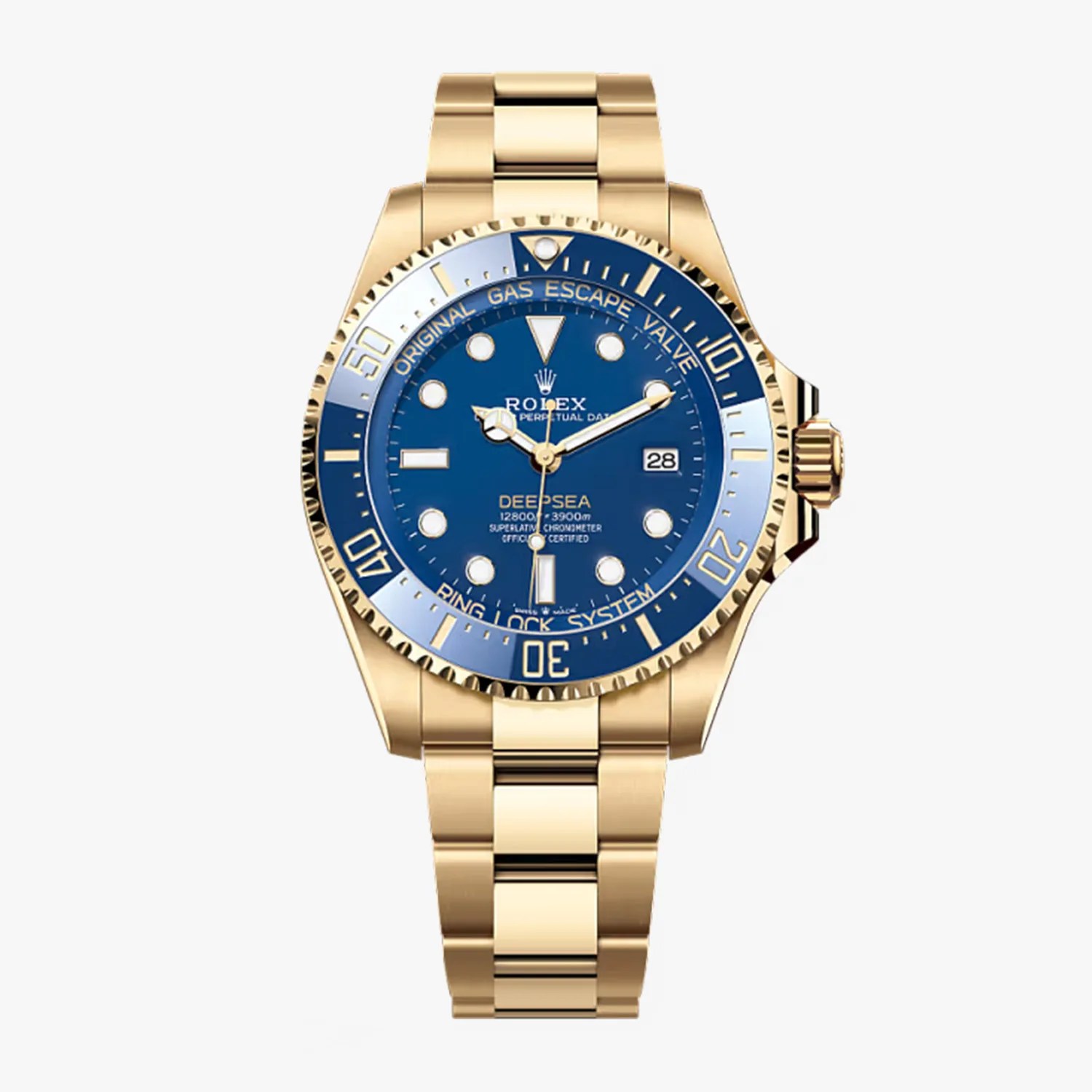 Rolex
RolexGP100 WINNER
Rolex Deepsea Yellow Gold
Specs
| Case Size | 44mm |
| Movement | Rolex Cal. 3235 automatic |
| Water Resistance | 3,900m |
Some products exist not to fulfill a need in the market, but simply because they can exist. This is one such product.
No one needs a solid gold dive watch capable of surviving depths down to 3,900 meters. But the fact that such a product was even created is a testament to Rolex’s ingenuity and creativity. No other brand could pull off this watch. No other brand would even attempt to.
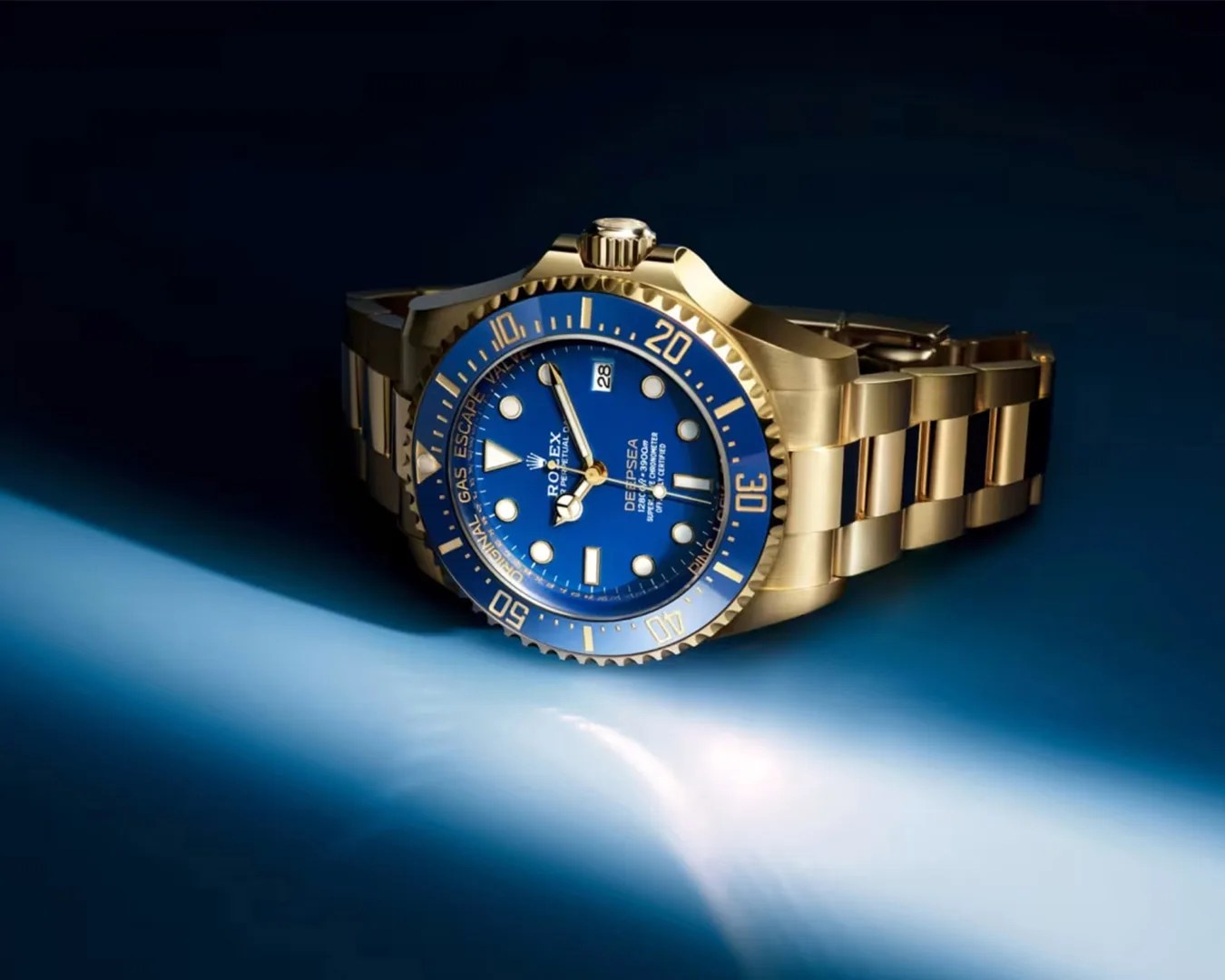 Rolex
RolexThe watch is unapologetically absurd. It’s 17.7mm thick and weighs more than 300 grams. But despite its ludicrous nature, it’s also an incredible feat of engineering. Rolex very easily could have created a version of the watch with a lower depth rating. No one is diving anywhere close to 3,900 meters, anyway. But that’s not the way Rolex does things.
Instead, the brand took every measure to make sure this massive hunk of gold was one of the most capable dive watches in the world, practicality be damned. That meant engineering a caseback and helium escape valve out of titanium since gold would be crushed in those positions at the pressures this watch needs to withstand.
The watch lives simultaneously as an extreme luxury item and an overbuilt tool, and there’s simply nothing else like it.
6. A simple tweak brings new appreciation to an icon
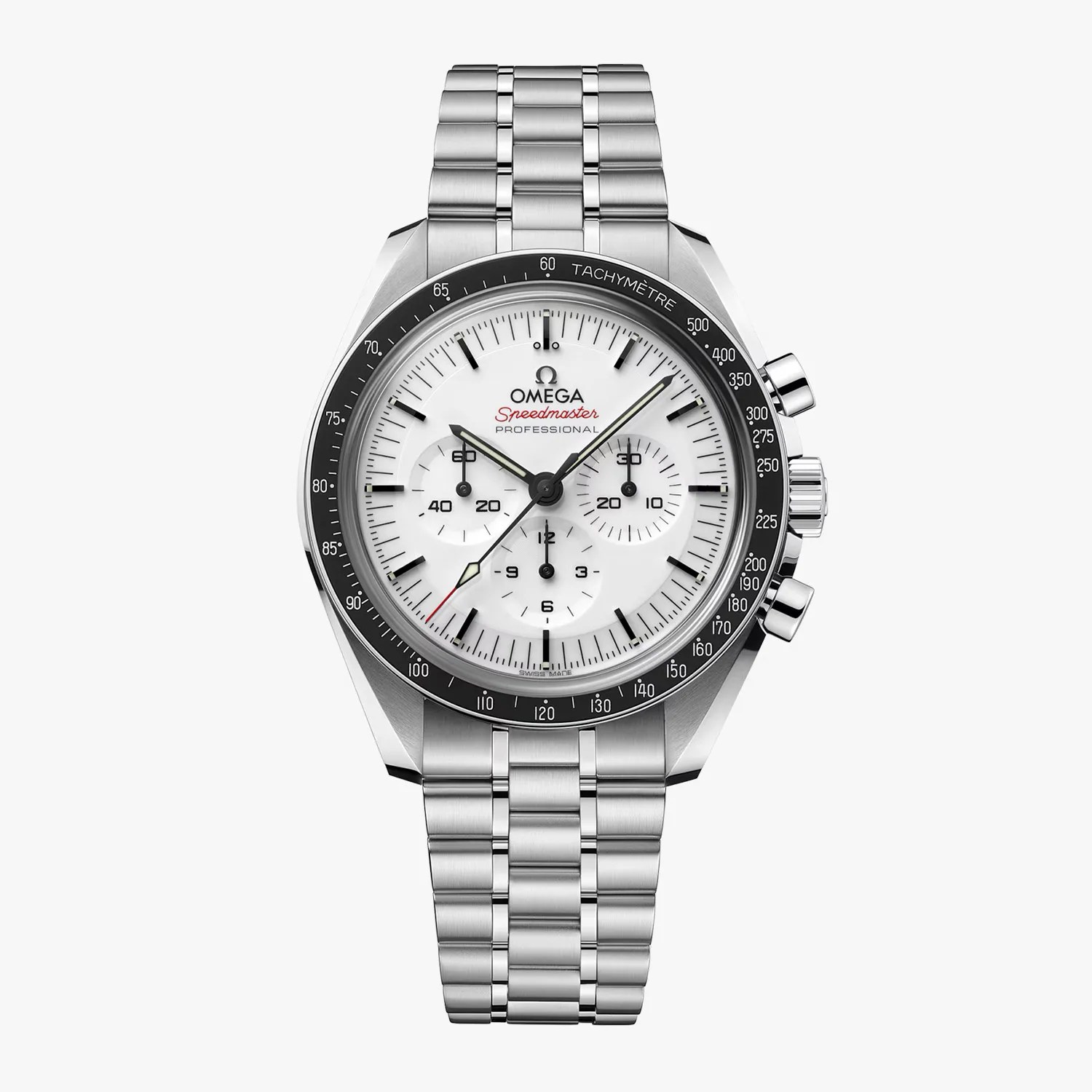 Omega
OmegaGP100 Winner
Omega Speedmaster Moonwatch Professional White
Specs
| Case Size | 42mm |
| Movement | Omega Cal. 3861 hand-wind chronograph |
| Water Resistance | 50m |
Watches don’t get any more iconic than the Omega Speedmaster Moonwatch Professional. That tends to happen when you lay claim to the title of “first watch worn on the moon.”
But icons don’t have to remain static. They can evolve, they can improve, and in the case of the Speedy, they can make an obvious yet simple change that ends up allowing everyone to see them in a new light.
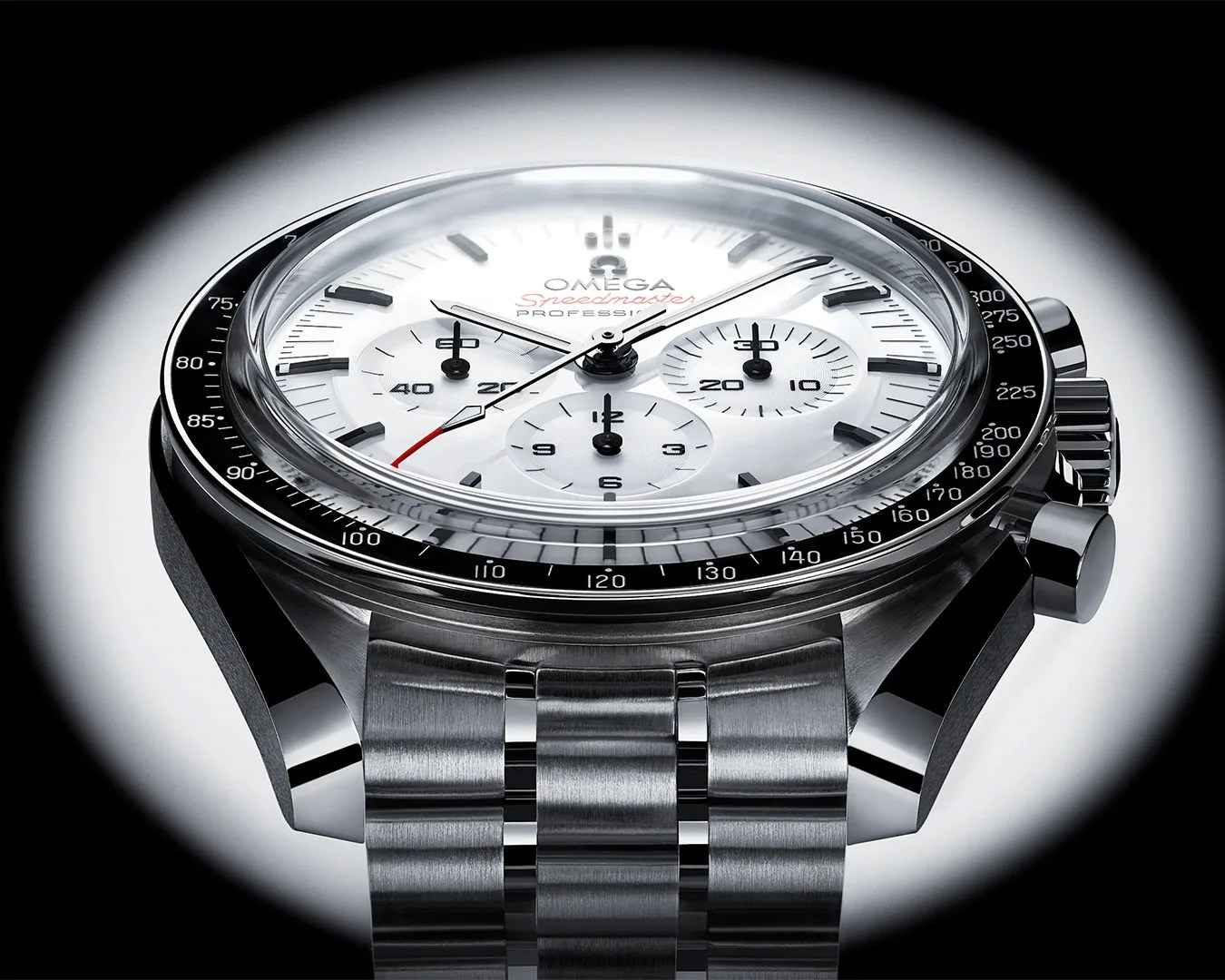 Omega
OmegaThis year, Omega launched a new version of the Moonwatch with a white dial. There have been white Speedys before — several, in fact — but none quite like this. This one isn’t a limited edition, and it isn’t tied to any special event like the Olympics. It is the first time Omega has produced a regular production Moonwatch in stainless steel with a white dial.
That alone is a big deal; a legendary watch that’s always been black suddenly becoming available in the exact opposite color. But it’s the execution that really takes the watch over the top. It isn’t just a black Moonwatch with its colors inverted. The white dial is lacquered, the black indices applied and there’s that perfect pop of red for the “Speedmaster” font.
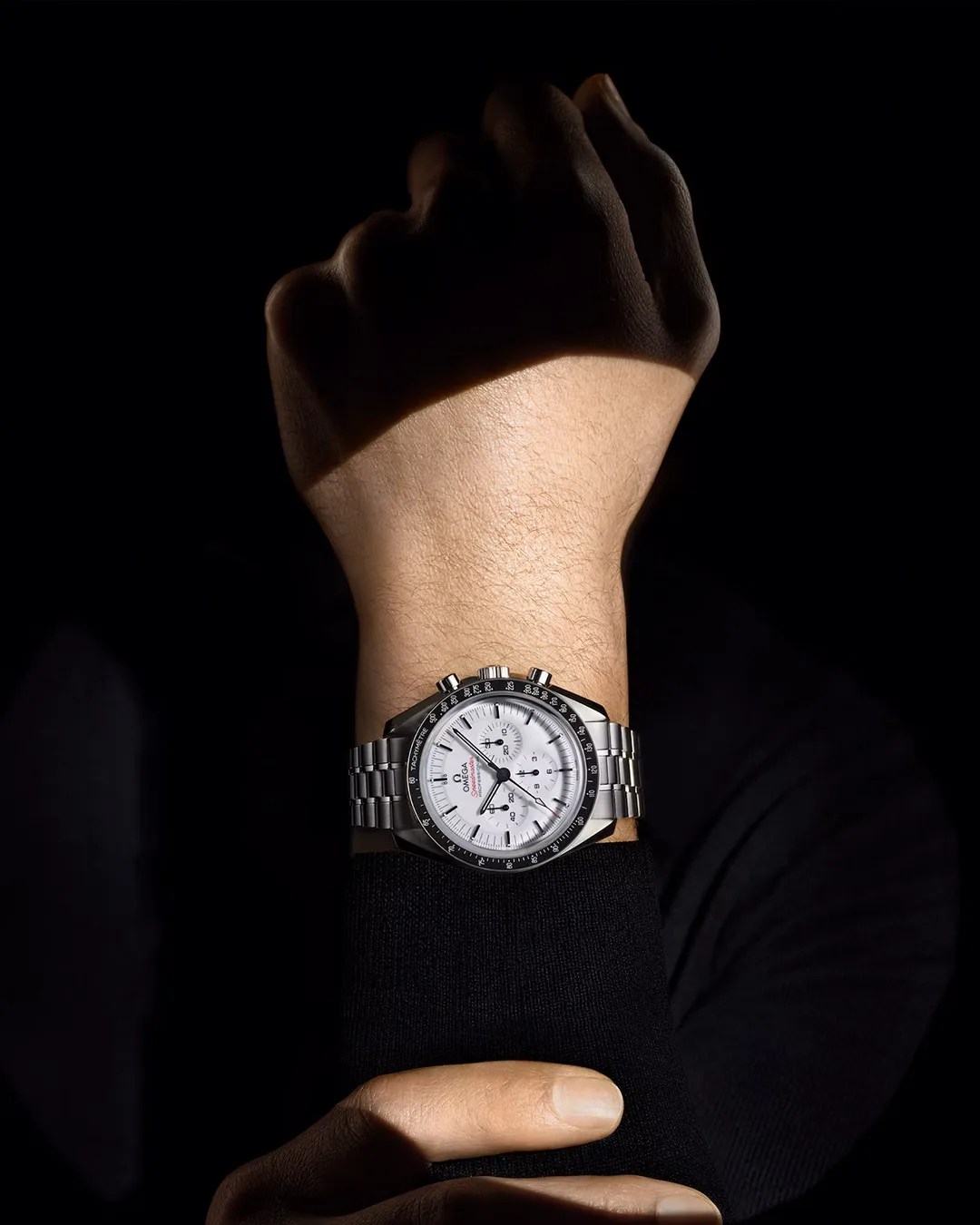 Omega
OmegaThe watch is utterly beautiful and allows us to appreciate the Speedmaster’s arguably perfect design through fresh eyes. It’s a worthy new chapter in what may be the greatest watch story ever told.
5. An insider favorite moves up to the big leagues
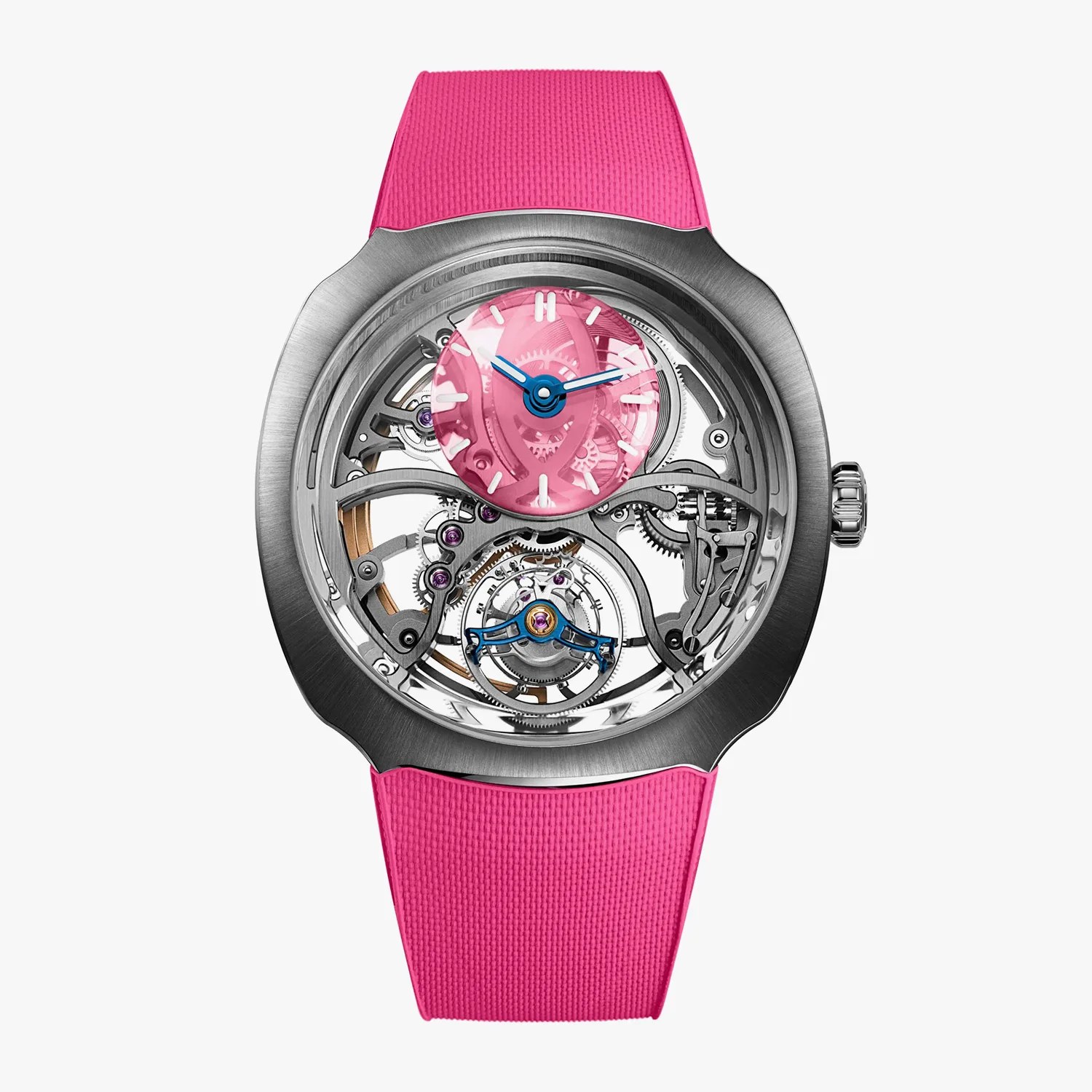 H. Moser & Cie.
H. Moser & Cie.GP100 WINNER
H. Moser & Cie. Streamliner Cylindrical Tourbillon Skeleton Alpine Limited Edition
Specs
| Case Size | 42.3mm |
| Movement | H. Moser & Cie. Cal. HMC 811 automatic tourbillon |
| Water Resistance | 120m |
For several years now, H. Moser & Cie. — or simply “Moser” to those familiar with the brand — has been the ultimate “if you know, you know” brand. But that is changing.
Although the company’s origins stretch back to 1828, its current story really begins in 2012 when the Meylan family took control of the company. Since then, Moser has carved out a unique spot in the crowded independent luxury watch market through a combination of a signature minimalist style, high-end complications and an irreverant sense of humor.
While the brand remains small and little-known outside of collector’s circles, awareness of Moser has been steadily growing in recent years, with its biggest leap taking place this year with this very watch.
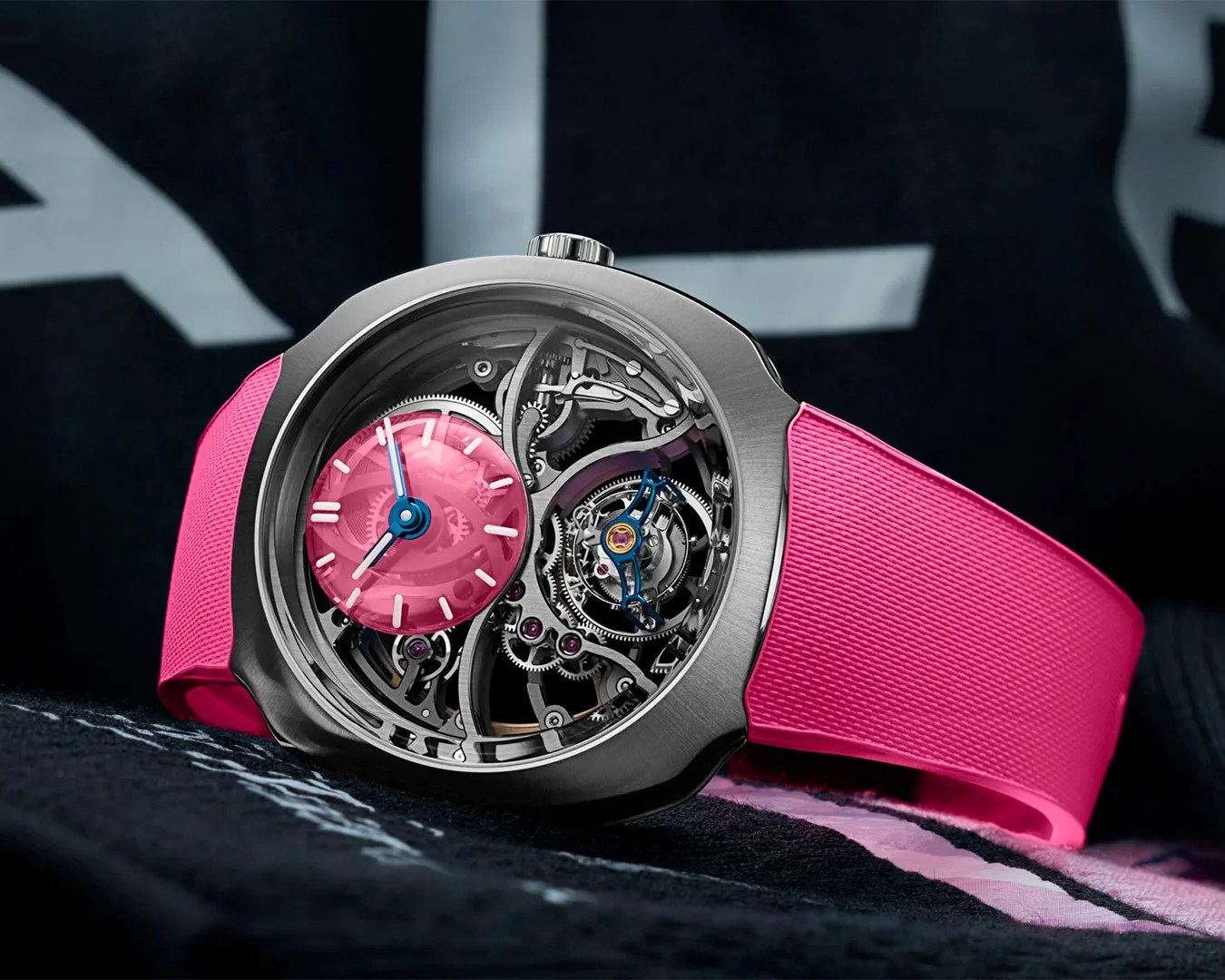 H. Moser & Cie.
H. Moser & Cie.The watch is something to behold. It combines the brand’s hyper-modern Streamliner sports watch case with its mesmerizing skeletonized cylindrical tourbillon movement and a matching blue or pink rubber strap, a formula that is daringly sporty, impressively complicated and achingly cool.
But even greater than the watch itself is what it represents. It was created to mark Moser’s new sponsorship of the BWT Alpine F1 Team, a massive achievement for such a tiny company and something that should continue to fuel Moser’s growth on and off the track.
4. A dive watch that perfectly balances form and function
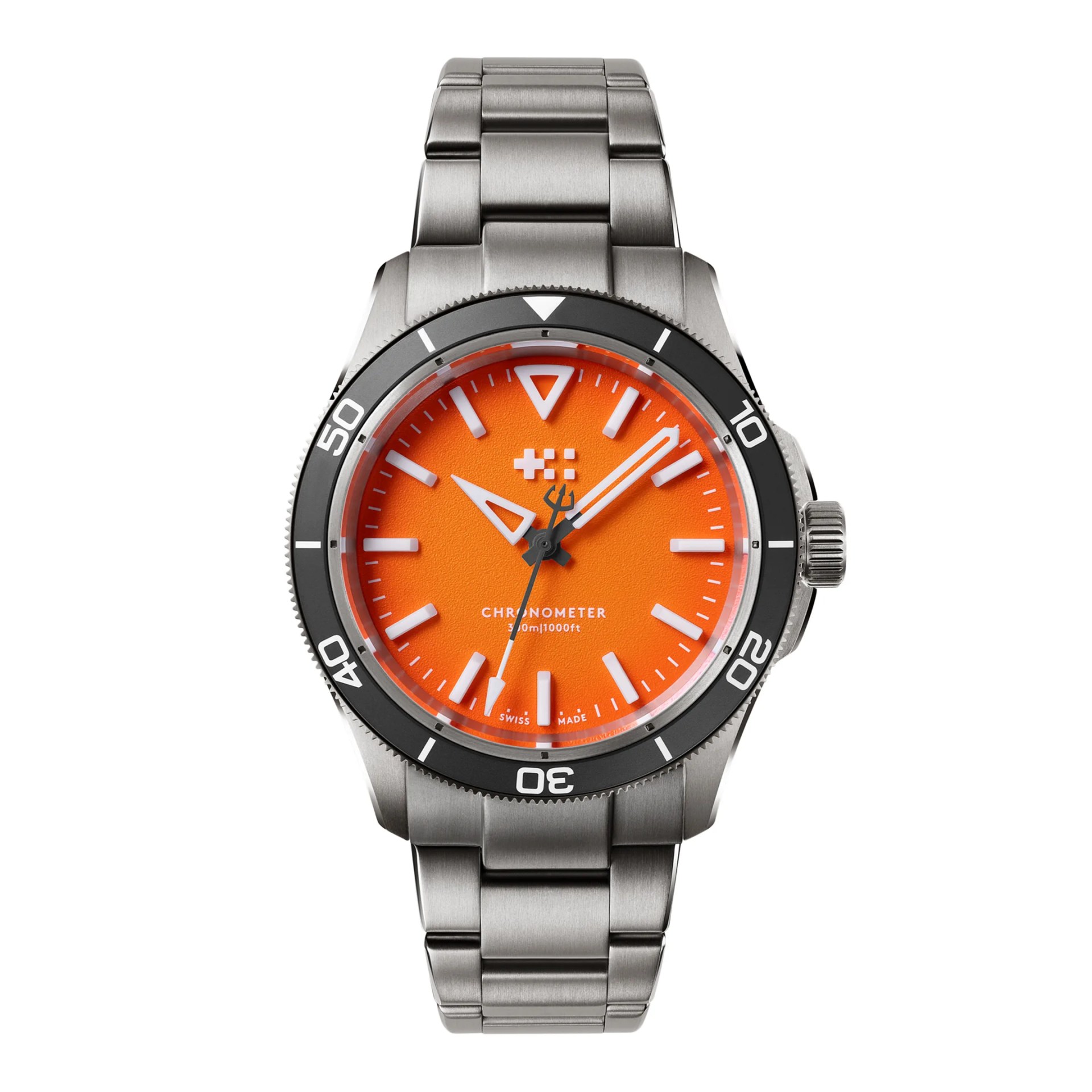 Christopher Ward
Christopher WardGP100 Winner
Christopher Ward C60 Trident Lumière
Specs
| Case Size | 41mm |
| Movement | Sellita SW300-1 automatic |
| Water Resistance | 300m |
The best watches are those that equally prioritize their utility and looks. This diver from Christopher Ward is a masterclass in how to do just that.
When it comes to utility, the Lumière has it in spades. Its bracelet has a quick-adjust clasp, it has a helium escape valve and its automatic movement is COSC-certified. Its materials are all top-notch, too. The thin case and bracelet are made of lightweight titanium, there’s a fully-lumed ceramic bezel insert and Globolight is used for the hands and indices.
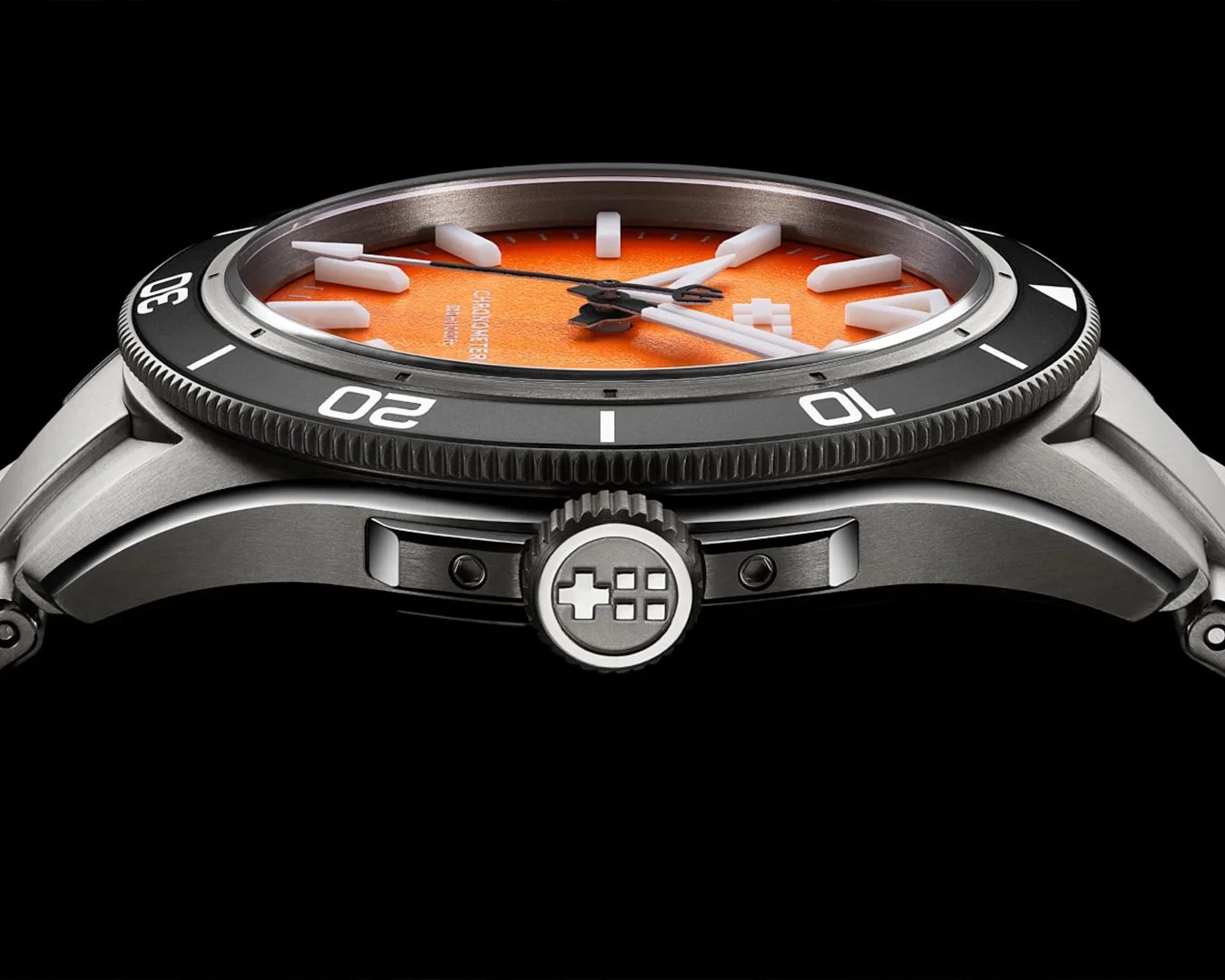 Christopher Ward
Christopher WardGlobolight is a luminescent ceramic material made by Xenoprint that is most often utilized by watches far more expensive than anything Christopher Ward makes. Its use here is very welcome — it’s around twice as bright as typical lume-filled indices — and is yet another example of CW’s longstanding tradition of democratizing luxury watch traits.
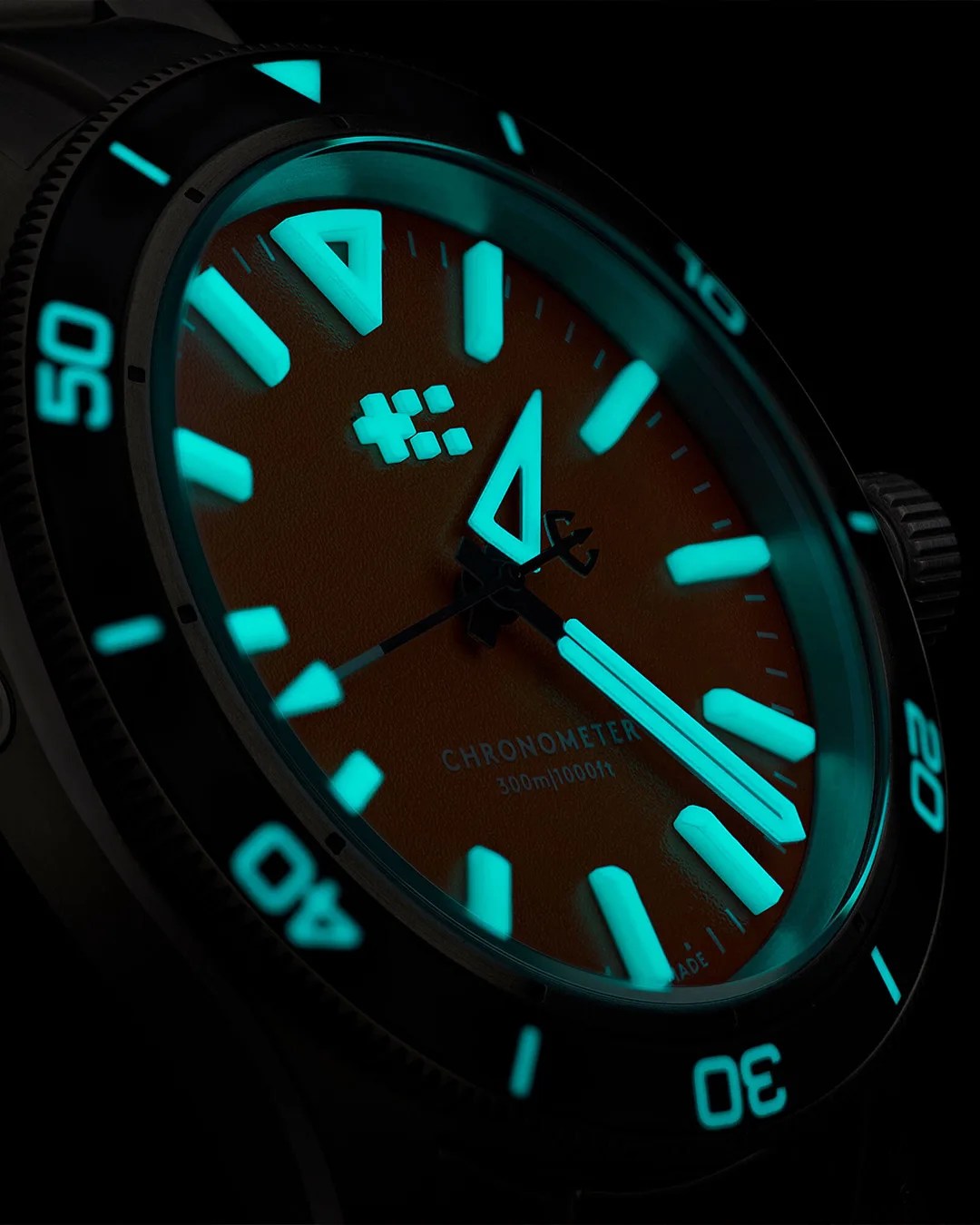 Christopher Ward
Christopher WardPerhaps what’s most impressive about the Lumière is the way all of these features come together. From the mix of fine polishing on the case to the stark-white beauty of the Globolight to the way the muted gray of the Grade 2 titanium contrasts with the saturated color of the fumé dial, everything has been carefully considered to ensure that utility never gets in the way of beauty — and vice versa.
3. A new benchmark in mechanical timekeeping accuracy
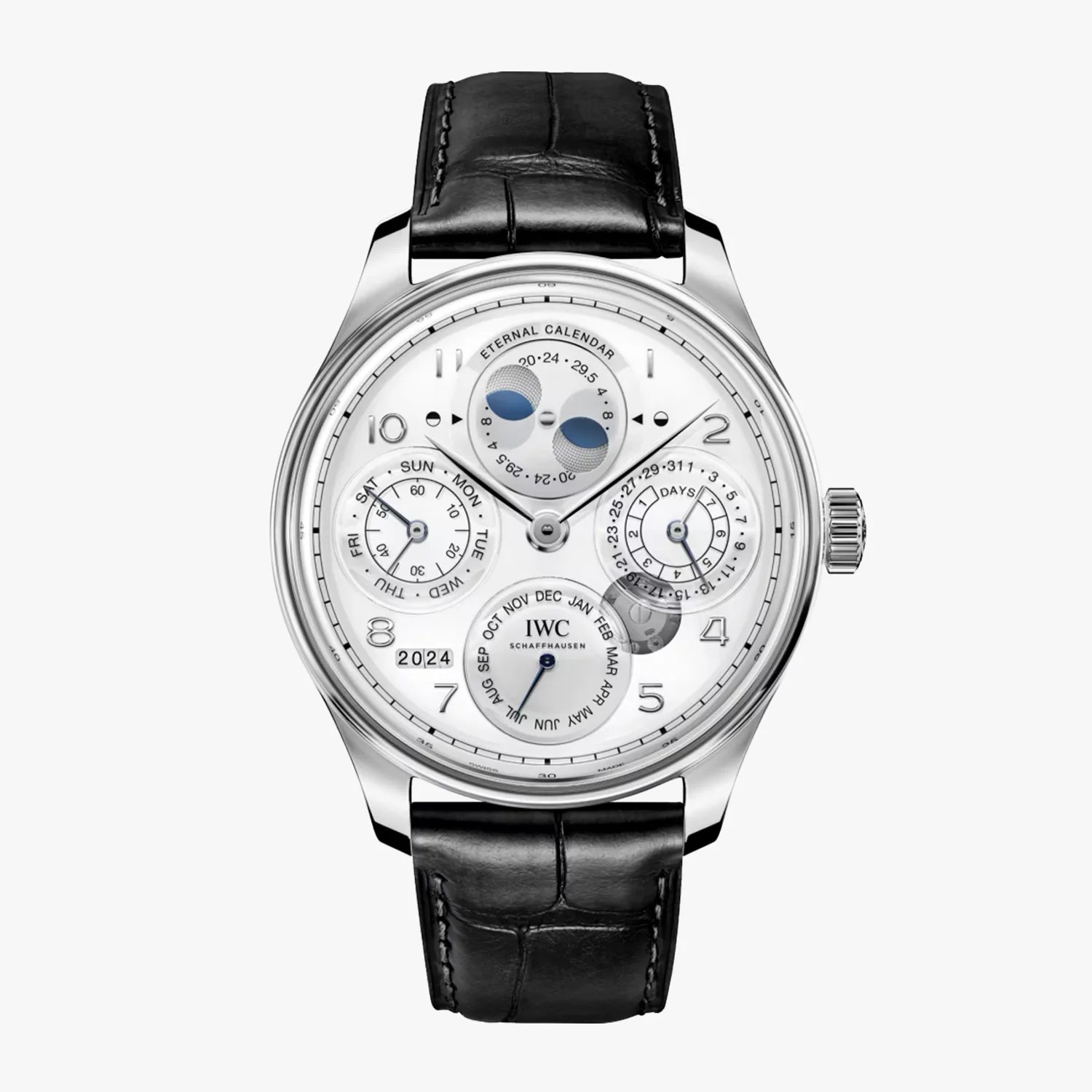 IWC Schaffhausen
IWC SchaffhausenGP100 Winner
IWC Portugieser Eternal Calendar
Specs
| Case Size | 44.4mm |
| Movement | IWC cal. 52640 automatic eternal calendar |
| Water Resistance | 50m |
The perpetual calendar has long been the king of mechanical watch complications, but a new ruler usurped the throne this year. The king is dead, long live the king.
There are numerous levels to calendar watches. The simplest track the date and must be manually corrected for every month that contains fewer than 31 days.
Next are annual calendars, which automatically account for the different number of days in each month and only need manual intervention every four years to correct for the leap year.
Finally, there are perpetual calendars, which account for leap years and will remain accurate until the next time the Gregorian calendar skips a leap year in 2100.
For any reasonable person, that should be enough. But IWC’s watchmakers in Schaffhausen are not reasonable.
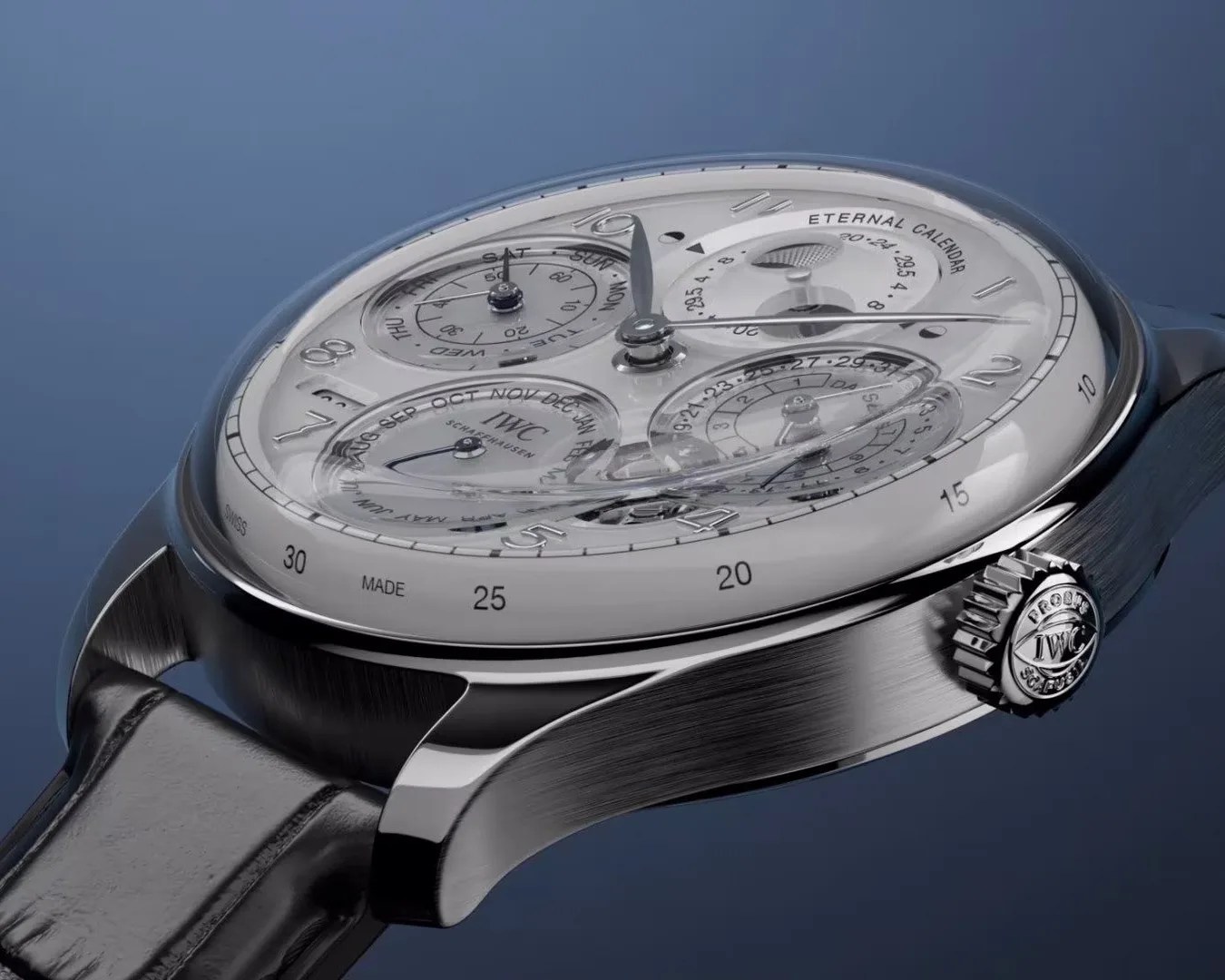 IWC Schaffhausen
IWC SchaffhausenTheir Eternal Calendar goes even further, incorporating a 400-year gear that completes just one revolution every four centuries, skipping the pre-scheduled three leap years during that period. The watch’s calendar will remain accurate until at least the year 3999.
That itself is an absurd achievement, but it’s not even the watch’s greatest claim to fame. The Eternal Calendar also has a moonphase complication that IWC says will remain accurate for 45 million years, a staggering figure that is impossible to comprehend but, it would seem, not necessarily engineer.
2. A pitch-perfect answer to the clarion call of collectors
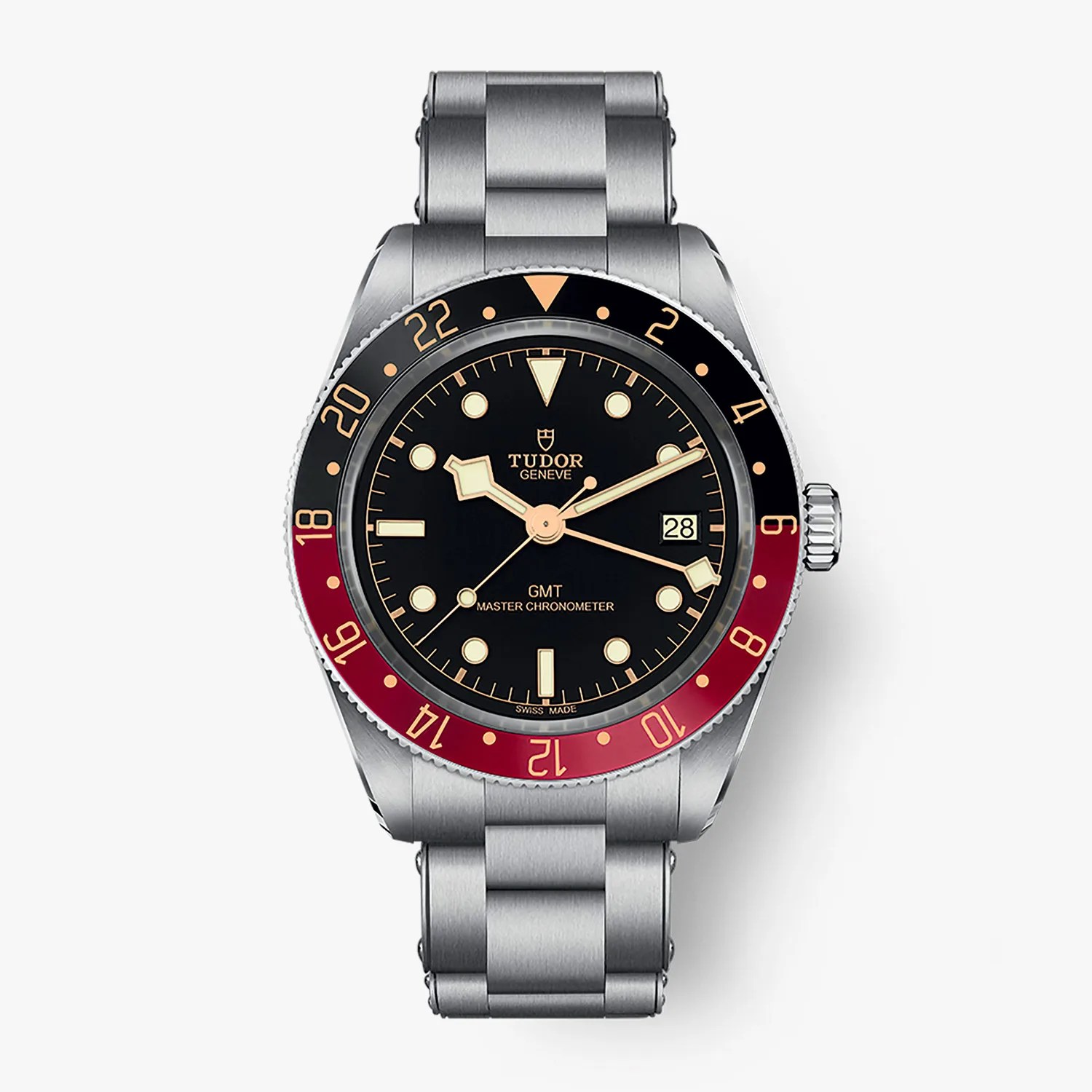 Tudor
TudorGP100 Winner
Tudor Black Bay Fifty-Eight GMT
Specs
| Case Size | 39mm |
| Movement | Tudor Cal. MT5450-U automatic GMT |
| Water Resistance | 200m |
Is there anything more satisfying than when a brand listens to its customers?
The year 2018 was a monumental one for Tudor, with the brand launching two important new watches: the Black Bay GMT and the Black Bay Fifty-Eight. The response to both was positive, but almost immediately, fans of the brand began requesting that Tudor find a way to combine the two watches.
Many loved the style and functionality of the GMT but found its case too large to wear comfortably. The Black Bay Fifty-Eight, meanwhile, had proportions that were widely hailed as perfect. So if Tudor were to make a GMT in the BB58 case, then we’d theoretically have the perfect travel watch.
It took six years, but that’s exactly what Tudor gave us in 2024. The Black Bay Fifty-Eight GMT is, in many ways, even better than what fans had hoped for.
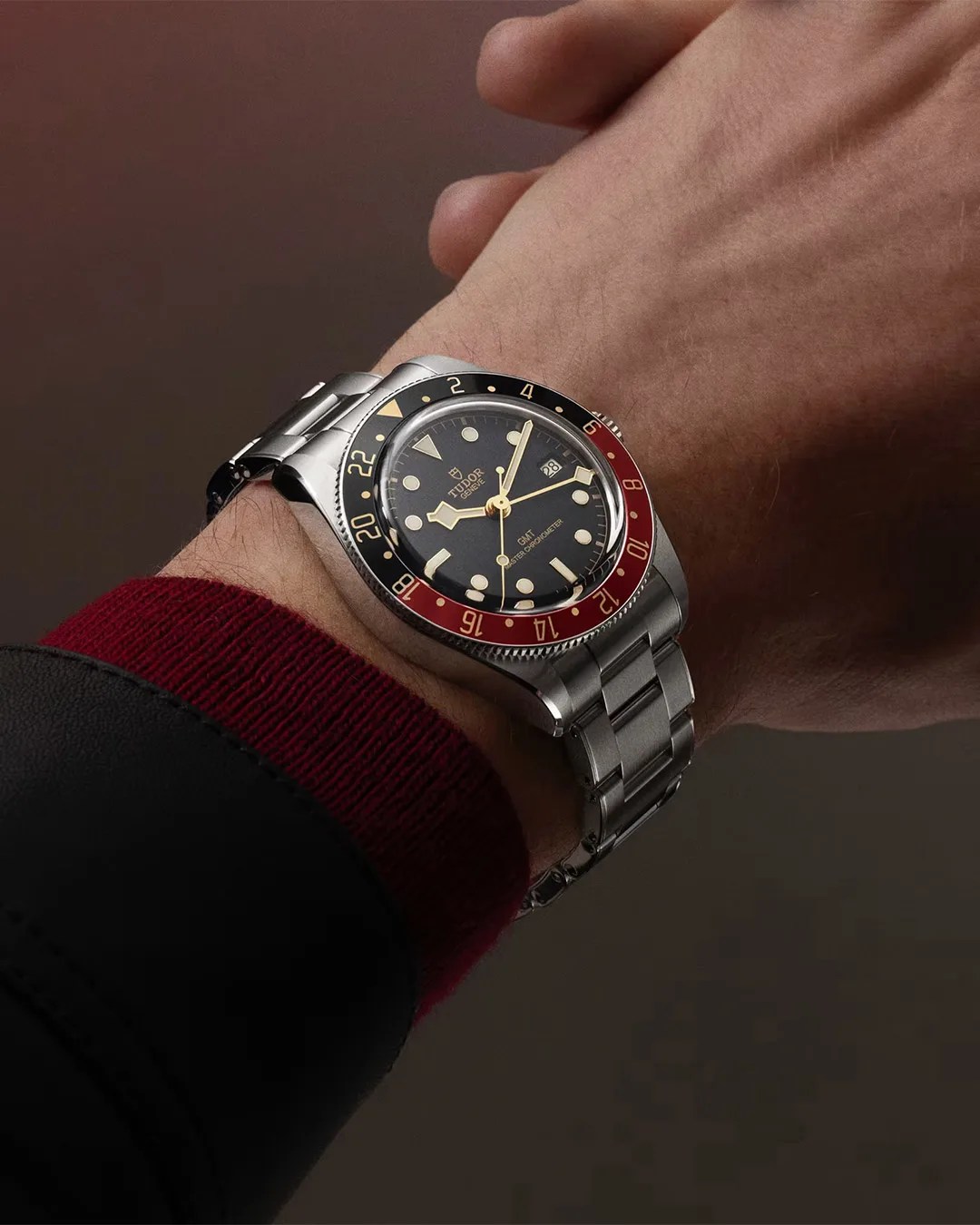 Tudor
TudorYes, it packs GMT looks and functionality into a smaller case roughly the same size as a BB58. But it’s also the first Tudor GMT with a Master Chronometer movement, the first to include the option of an integrated rubber strap, and the first with a tool-less micro-adjustable clasp, which is found on both the bracelet and strap.
It’s nice to know Tudor’s been taking notes these past six years.
1. A tool watch so wonderful, it might make you believe in magic
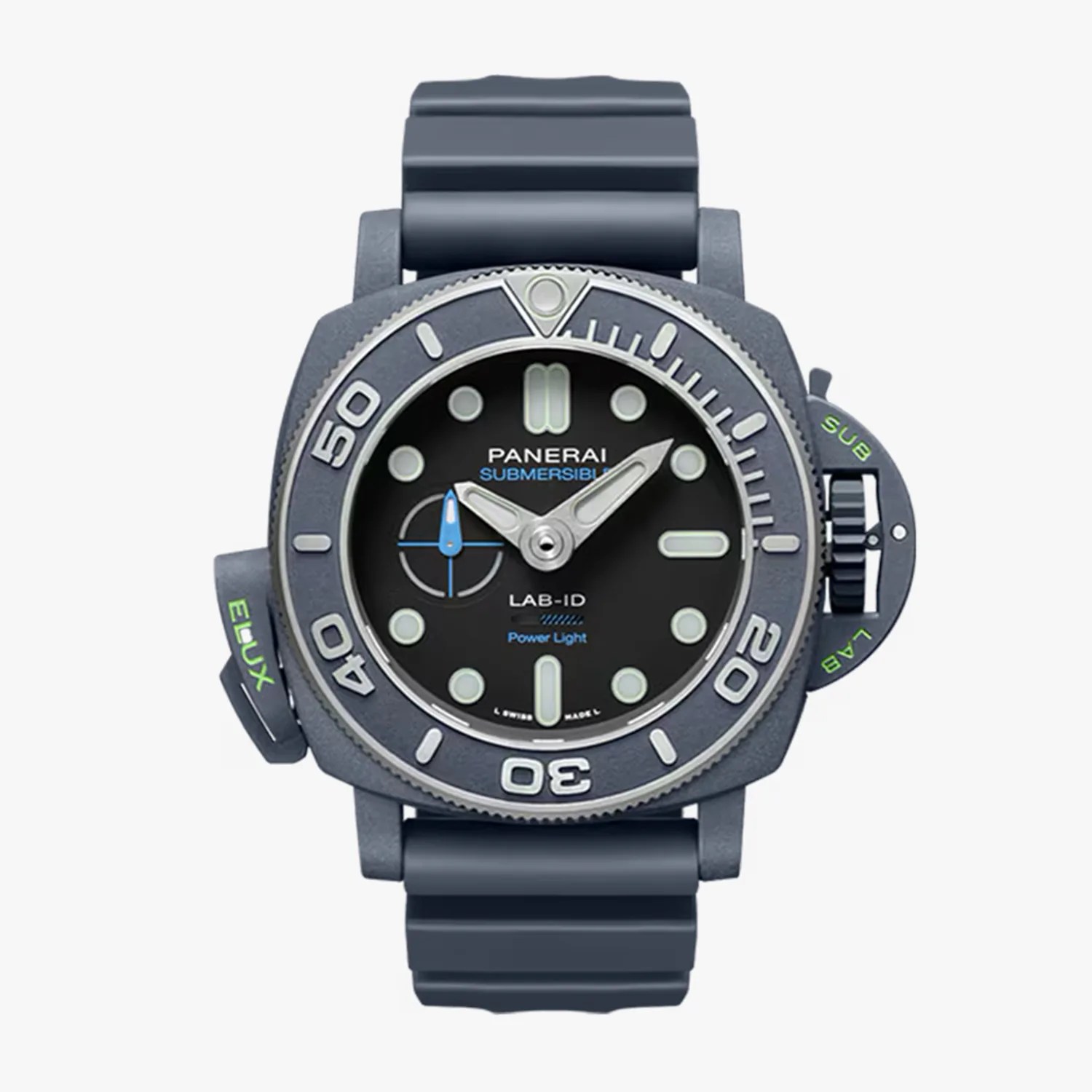 Panerai
PaneraiGP100 Winner
Panerai Submersible Elux LAB-ID
Specs
| Case Size | 49mm |
| Movement | Panerai Cal. P.9010/EL automatic with mechanical luminescence |
| Water Resistance | 500m |
Once in a while, a product comes along that functions in such a way that it can only be described as magical. This Panerai dive watch may not actually run on pixie dust, but it inspires so much joy and childlike wonder that it might as well.
Dive watches, by definition, require luminescence. Mechanical watches use either photoluminescent paint that must absorb light to emit a glow, or tritium gas, which permanently glows — although not very brightly — for around 25 years. Quartz watches use electrical lights that run off of the watch’s battery.
 Panerai
PaneraiBut what if a mechanical watch could produce enough electricity to power electrical lights of its own without batteries?
It seems like something out of science fiction, but Panerai created such a mechanism for the awe-inducing Submersible Elux LAB-ID.
The watch’s mechanical movement contains four barrels dedicated to storing energy generated by winding the crown. A micro-generator inside the movement converts this energy into electricity, which powers LED lights on the hands, indices and bezel. These lights can then be turned on and off like a light switch via a pusher on the case.
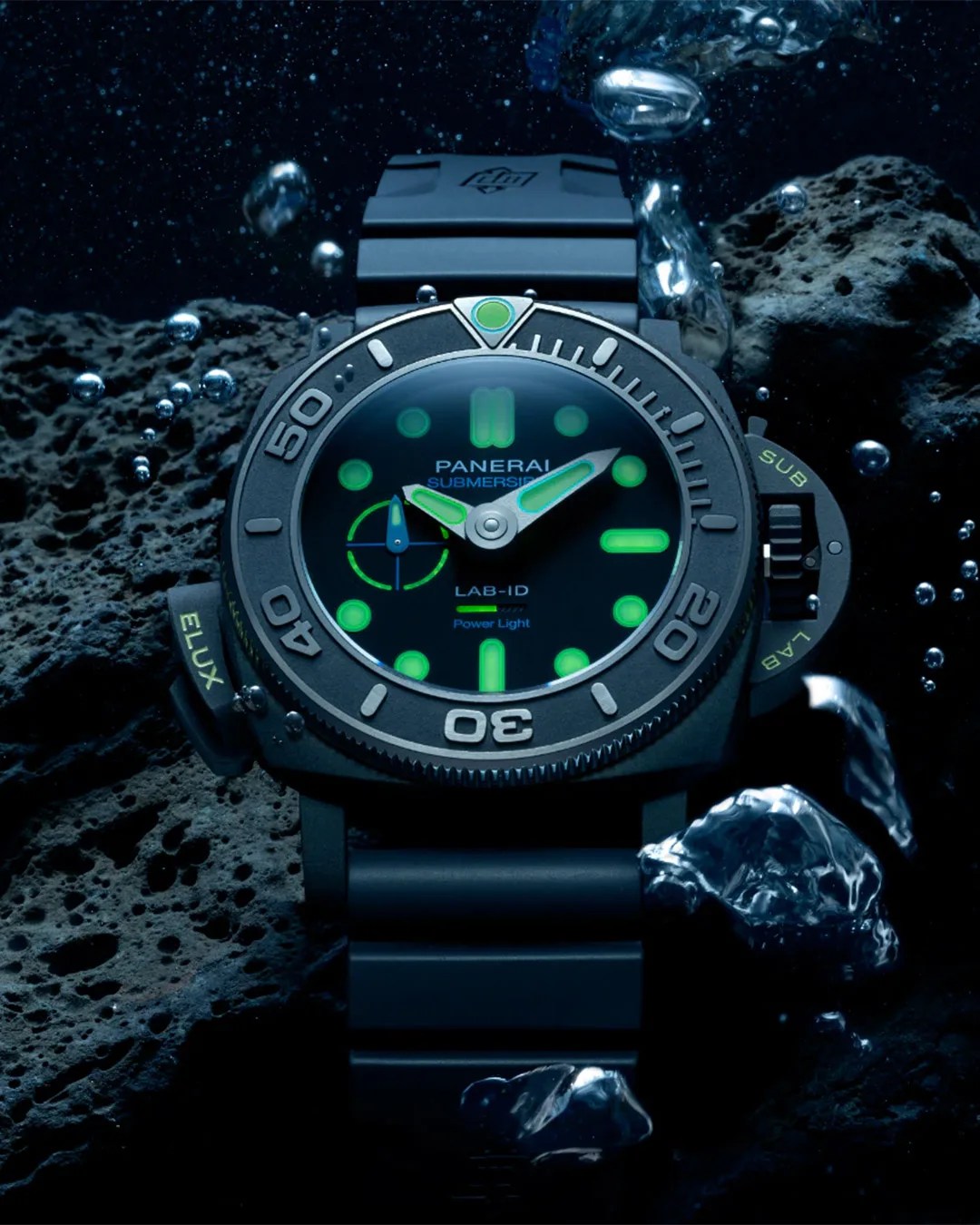 Panerai
PaneraiThe system took Panerai eight years and three patents to develop, displaying the rare sort of obsessive dedication to innovation required for such a spellbinding invention.
You’ve reached the end of this portion of the GP100, a countdown of the year’s most significant releases. Check out the collection page to see what else made the list or browse last year’s winners.
